

9th Class English – All Chapters Questions Answers
Lesson No: 1
THE SAVIOUR OF MANKIND
Q: What type of land Arabia is?
A: Arabia is a land of unparalleled charm and beauty, with its trackless deserts of sand dunes in the dazzling rays of very hot sun.
Q: Why was the Holy Quran sent in Arabic?
A: Since it is a language of eloquence, Allah Almighty sent it in Arabic.
Q: For which ability were the Arabs famous?
» View More
A: Mankind stood on the verge of chaos. The civilization had started crumbling. It had fallen victim to wrong beliefs, social evils, cruelty and injustice.
Q: Why did the Rasool (SAW) stay in the cave of Hira?
A: The Rasool (SAW) stayed in the cave of the mount Hira for meditation and spent days and weeks in remembrance of Allah Almighty.
Q: What was the first revelation?
A: Read in the name of Lord Who created; created man from a clot (of congealed blood): Read and the Lord is most Bountiful, Who taught (the use of) the pen, taught man that which he knew not. (Quran, 96: 1-5)
Q: Why did the pagan Arabs threaten the Rasool’s uncle?
A: Since the belief of Oneness of God (Tauheed) was threatening the dominance of the Pagan Arabs in the society, they threatened the Rasool’s (SAW) uncle.
Q: What did Hazrat Ayesha (RA) say about the life of the Rasool (SAW)?
A: She said, “His morals and characters are the embodiment of the Holy Quran.”
Lesson No: 2
PATRIOSTISM
Q: How will you define patriotism?
A: Patriotism is defined as thus: Means love for the motherland or devotion of the one’s country.
Q: What are the qualities of a patriot?
A: A patriot loves his country and is always willing to sacrifice for it when the need arises.
Q: As a citizen of Pakistan what are your duties towards your country?
A: As a citizen of Pakistan my first and foremost duty to my country is loyalty to it. I should always be willing to sacrifice my life for the freedom and honor of my country. I should work hard for the progress and prosperity of my country.
Q: What makes us stay alert in the wake of foreign invasion?
A: It is the spirit of Patriotism that makes us stay alert in the wake of foreign invasion.
Q: How will you elaborate Quaid-e-Azam Muhammad Ali Jinnah’s quote? “We must develop a sense of patriotism galvanize us all into one united and strong nation?
A: If we develop a sense of patriotism we shall not fall prey to disunity, disharmony, provincialism and disintegration. The spirit of patriotism will keep us united and strong.
Lesson No: 3
MEDIA AND ITS IMPACT
Q: What is the most important function that media performs?
A: It raises awareness about many social issues like corruption, terrorism, drug addiction and violation of human rights. It has also become the mouthpiece of the downtrodden.
Q: What are the two major means of the communication?
A: Electronic media and print media are the two major means of communication. It includes films, radio, television, internet, newspapers and magazines.
Q: How does media provide entertainment?
A: Electronic media includes film, radio, television and internet. TV is a very fine medium of entertainment. We enjoy different kinds of programs on it such as music, sports, dramas, jazz, matches and movies. On the radio, we hear all kinds of music from different radio stations. We listen to dramas in different languages. In newspapers, we read humorous essays, stories and sports news.
Q: What happens when media is allowed to play its role unchecked?
A: If media is allowed to play its role unchecked, it may spread false news against the government, which is very harmful for a stable government. It may speak in favour of opposition unnecessarily for its self-interests and can excite people against the government. It may overthrow a government through its false propaganda. A dishonest media is dangerous for a peaceful society.
Q: Give three reasons in support of your favourite T.V. programme.
A: The National Geographic is a well-known documentry programme on wildlife and nature. I like this programme very much because it focuses mainly on the ever changing world, on wild life and on nature and people that colour it with. It is a window to the world. By watching it, I can travel, explore and discover the four corners of the world. It has expanded my knowledge about nature and wildlife. I get a chance to enjoy beautiful sights of the world. I never feel restless or bored while watching this programme.
Lesson No: 4
HAZRAT ASMA (RA)
Q: What happened when Abu Jehl asked about Hazrat Abu Bakr (RA)?
A: When Abu Jehl asked Hazrat Asma (RA) about her father’s whereabouts, she counter questioned him, “How would I know?” This infuriated Abu Jehl. He slapped Hazrat Asma’s (RA) face so hard that her ear-ring fell off. She faced him bravely and did not reveal the secret.
Q: Why was Hazrat Abu Quhafaa (RA) worried?
A: Hazrat Abu Quhafaa (RA) was worried that Hazrat Abu Bakr (RA) had taken all the wealth with him leaving him and children empty handed and helpless.
Q: How did Hazrat Asma (RA) console her grandfather?
A: She immediately gathered some pabbles and put them at the place where her father used to keep his money and jewels and covered them with a piece of cloth. She called her grandfather and told him that her father had left all that for us. He touched the cloth and his concern was alleviated. In this way, Hazrat Asma (RA) consoled her grandfather.
Q: Who was Hazrat Abdullah Bin Zubair (RA)?
A: Hazrat Abdullah Bin Zubair (RA) was son of Hazrat Asma (RA).
Q: Which incident in the story showed Hazrat Asma’s (RA) love and respect for the Rasool (SAW)?
A: The role of Hazrat Asma (RA) played at the time of the migration of the Rasool (SAW) showed her love and respect for the Rasool (SAW). Disbelievers of Makkah were bent upon taking the life of the Rasool (SAW) and were looking for him. She risked her life and supplied food to Rasool (SAW) and his father, Abu Bakr (RA) in the cave of Thaur courageously.
Q: Which incident in the story tells about the generosity of Hazrat Asma (RA)?
A: When Hazrat Asma (RA) inherited a garden after the death of her sister Hazrat Ayesha (RA) she sold it and gave away all the money among the poor and the needy. She felt pleasure in doing so.
Q: What message do you get from the life of Hazrat Asma (RA)?
A: The message we get from the life of Hazrat Asma (RA) is that one should live a life of bravery, truthfulness, piety, generosity and patience.
Q: “Her life would always be a beacon of light for all of us” How?
A: Hazrat Asma (RA) was an embodiment of bravery generosity and patience. She had resolute faith in Allah Almighty and always showed patience in suffering and hardships. Therefore, her life would always be a beacon of light for all of us.
Lesson No: 5
Q: What is the central idea of the poem?
A: The central idea of the poem is that it presents before us not only the attractive and exciting beauty of nature but also the purifying and enduring impact of it on human beings.
Q: What do the daffodils represent in the poem?
A: Daffodils represent nature and its impact on human beings.
Q: What “wealth” do memories of the scene give to the poet?
A: Its about moments in our life that we replay in our memories.
Q: List the words that heighten the sound effect in the poem?
A: Vales and hills, sprightly dance, jocund company.
Q: How has the poet heightened the impact of the poem by using the figurative language?
A: The poet has heightened the impact of the poem by using figurative language such as “they stretched in never ending line” and “ten thousand saw I at a glance”.
Lesson No: 6
THE QUAID’S VISION AND PAKISTAN
Q: How much confidence did the Quaid-e-Azam have in his nation?
A: The Quaid-e-Azam had a great confidence in his nation.
Q: What was Quaid’s concept of our nation?
A: The Quaid’s concept of our nation was that we are one nation on the basis of religion and culture.
Q: What was the ideology of the Quaid-e-Azam based on?
A: The ideology of the Quaid-e-Azam was based on the pivot of the Muslim unity and oneness as a nation.
Q: What can be the possible solution to our present problems?
A: The possible solution to our problems is that we should not fall prey to fatal diseases of disunity, disharmony and disintegration. We should pay heed to the Quaid’s warnings and advice.
Q: How can we become a strong nation?
A: We can become a strong nation if we start to think beyond personal, local, linguistic, ethnic, sectarian or provincial identities and prejudices.
Lesson No: 7
THE SULTAN AHMAD MASJID
Q: Why Sultan Ahmad Masjid is also known as Blue Masjid?
A: The Sultan Ahmad Masjid is known as the Blue Masjid because of the tiles that embellish its interior.
Q: Who was appointed as the architect of the Masjid?
A: Sedefhar Mehmat Agha, was appointed the royal architect of the masjid.
Q: Why was a heavy iron chain hung at the entrance of the court?
A: A heavy iron chain was hung at the entrance of the court, so that the Sultan had to lower his head every time he entered the court in order not to get hit and also as the symbolic gesture, to ensure the humility of the ruler in the face of the divine.
Q: How does the interior of the masjid look?
A: The interior of the masjid is embellished with blue tiles, which gives its interior an attractive look.
Q: Why do you think Madrassah and hospice was part of the masjid?
A: I think the Madrassah was for the students who came to acquire Islamic religious education and the hospice was for the needy and the destitude.
Q: Who constructed the masjid Sophia?
A: The Hagia Sophia Masjid was constructed by an Ottoman Caliph.
Lesson No: 8
STOPPING BY WOODS ON A SNOWY EVENING
Q: Who is the speaker in the poem?
A: The speaker in the poem is the horse rider.
Q: Whom does the speaker refer to in the first stanza of the poem?
A: The speaker refers to the owner of the woods.
Q: Why does the speaker stop on “the darkest evening of the year”?
A: He thinks to stop on the darkest evening of the year because the woods are lovely, dark and deep.
Q: Why does the horse impatiently await the next move of his master?
A: The horse impatiently awaits the next move of his master as there is no farmhouse nearby. He would not be able to get any food. He is also fearful that he might have made some mistake.
Q: The speaker in the poem is captivated by the beauty of nature. Why doesn’t he stop for long to enjoy nature’s beauty?
A: He is captivated by the beauty of the dark, deep and lovely woods but he has promises to keep that is to say that he has some worldly tasks to accomplish. Therefore, he does not stop there for long.
Lesson No: 9
ALL IS NOT LOST
Q: Why did the nurse ask Hira’s sister to come and talk to her?
A: Hira had severe bus-accident. She had received severe head and spinal injuries. The nurse tried to do several exercises on her lifeless arms but in vain. She made her younger sister to come and talk to her, thinking that her voice might activate her sister’s nearly dead neurons and brain.
Q: Why did the nurse disagree with the doctor’s point of view?
A: The nurse did not agree with the doctor’s point of view that Hira was hopeless case and would never walk again in life, thinking that it was unwise to leave a patient unattended. Life is very precious, a chance should be given to a patient.
Q: Why did the nurse ask herself the question “Was it worthwhile to oppose and fight the decision of senior and more qualified surgeons?
A: The patient was a hopeless case in the eyes of the surgeons and they wanted to get the bed cleared for other patients. The nurse requested the senior doctors to let her stay in the I.C.U. and allow her to attend to the patient. Her request was conceded to. She had risked her career for a hopeless case. She also thought it would not be worthwhile to oppose the senior surgeons, if the patient could not walk on her own feet.
Q: Describe some qualities of the personality of the nurse in the story.
A: She is a beginner in the profession of nursing. She is working in the I.C.U. of the neurology. She is very sincere to her profession. She is a kind-hearted that she feels the pain of the injured. She is a wise nurse and uses every kind of devices to make patient recover. She is an optimist. She is always ready to fight a lost war. She is proud of her profession.
Q: Why did the Nurse say: “where there is a will, there is a way”?
A: She said so because she proved it practically that a hopeless patient could be cured if you are willing to fight a lost war. If there is no will, there is no way.
Lesson No: 10
DRUG ADDICTION
Q: What are the effects of drug addiction?
A: Long term use of drugs causes permanent mental and physical sickness.
Q: What are the causes of drug addiction?
A: Drug addiction is caused by genetic and environmental factors.
Q: What important role do rehabilitation centers play to control drug addiction?
A: The rehabilitation centers play an important role in controlling drug addiction by providing the addicts proper guidance and treatment.
Q: What is the role of counseling in preventing drug addiction?
A: The factors that contributes in rehabilitation of the drug victim is proper counseling. The sooner it is done, the better for the victim.
Q: Why do families feel reluctant to take the drug victims to drug rehabilitation centers?
A: Because of fear being outcast the families of the drug victims feel reluctant to take them to drug rehabilitation centers.
Q: What are the responsibilities of the families to ensure complete recovery of such patients?
A: Doctors, family and friends must continue to critically watch and counsel the victim for better motivation and adjustment.
Lesson No: 11
NOISE IN THE ENVIRONMENT
Q: How do you define noise pollution?
A: Noise pollution is defined as any form of noise that disrupts the normal functioning of life.
Q: How is transport a source of noise pollution?
A: Excessive use of vehicle horns is a main source of noise pollution. Airplanes, trains and ships are also sources of noise pollution for people living in colonies near airports and railway stations.
Q: How is construction work a cause of noise pollution?
A: The transport and equipment used at construction sites, its grilling and piercing sound is a cause of noise pollution.
Q: How is use of technology causing noise pollution?
A: Technology based things produce damaging sound, which is freely audible. Thus, the use of technology is causing noise pollution.
Q: Why is noise dangerous for human health?
A: Noise is dangerous for human health, as it has a negative impact on it. It can cause conditions such as aggression, high blood pressure, hearing loss, restlessness, depression, insomnia and anxiety.
Q: What kind of precautions may reduce noise coming from electronic devices?
A: Listening to loud music or watching TV on a loud volume should be strictly prohibited. Excessive use of electricity generators and loud speaker in residential areas should also be discouraged. The government of Pakistan should frame rules in this regard and strictly enforce them to reduce noise pollution.
Lesson No: 12
THREE DAYS TO SEE
Q: Who was Helen Keller?
A: Helen Keller was a woman who became deaf and blind at the age of 19 months, when she was seven years old Anne Sullivan, took charge of her. She was a twenty year old graduate of the Perkins School for the blind.
Q: Describe the thought expressed by the author in the first paragraph.
A: The author thought that it would be an excellent rule to live each day as if we should die tomorrow. Such an attitude would emphasize the values of life.
Q: What makes you feel that the author is sad and depressed?
A: The author is sad and depressed that the people with sight can see so little. She is a blind, even so she can see better than people with sight.
Q: How do you get an impression that Hellen Keller was a great admirer of Nature?
A: She was a great admirer of nature. We get this impression that when she admires the rising sun and the pageant of seasons and trees.
Q: People who are deprived of sight not devoid of imagination. Discuss referring to the text.
A: The author of this lesson is not only blind but also deaf but she had better imagination than the people who can see. Her views on nature and people have proved it.
Q: “To me the pageant of seasons is an unending drama”, Comment.
» View Less
This Post Has 48 Comments
Such a great work. Thanks a lot 🌸
Yeah obviously 🤗
how I print these notes
That helped me a lot. Thank you so much.
you can simply click the arrow and then it and press ctrl+p and your notes will be printed
You can print ur notes using printer and if u have printer press ctrl+p to print it.
Download the notes and then you will able to print it.
thanks for helping here thanks
Good sir keep it next
Sir how can I print these notes
You have to download the Pdf File and then u can easily print it out… To download the file click on the arrow thing close to the title of The Saviour of Mankind and then download..
just take screenshots of the notes and save the screenshots in a usb and then print it from the printshop
Download and print from your storage devices or phone
Very Nice Notes They Helped Me Alot
Really helpful…thanks 😊
Really very helpful notes
You have done a great job
you r great sir GOD bless u
it is very helpful for us
The manan is saying correct
Thanks for this helpful website 😃😌 and plz design any new website according to board pattern plz
Very informative notes. We want more😊👍🏻
Very informative notes. We want more
Very informative but please provide more notes for grammar please my exams are near!!!
Good job sir welldone keep it up
Good work Keep it up I am sir of startwell school This help me in printing notes for teachers Thanks alot ☺️☺️
finally i found the right website to find the solution key …. it helped me alot for my test
like this website too much. keep it sir .
You are right
Last answer of ch 7 is wrong. masjid Sophia was built by roman emperor Justinian as a Christian State Church. Ant it was converted into mosque by Mehmed the conqueror
answer is according to the book.
everyone knows that in these chapters there are some small box questions we said that box questions whatever I also want them please I was searching for chapter 4 Hazrat Asma (RA) last 5th box question hmm… do tell me if yall can do anything.
How I can download it
aoa kindly send me all grammar work present in exercise
doesnt work on my chrome book
I need a chp 4 answer
Please set in freeilm past paper or models paper of all classes
how i download ?
Great ! Its very helpfull
why it take so long for appearing the summary ?
Where are Additional questions??? I need additional questions. Please add them too!!!!!!
Aoa Sir jo in chapters main questions Hain in me answer boi upload kardain please
Thank you for such a fantastic job. Your efforts are greatly appreciated.
Asslam-o-ALaikum; there is mistake in uNIT 2 Question:1 :It says “Devotion of ” but is devotiont to
Chapter 7: last question(6) answer is wrong It’s Ahmad2
Leave a Reply Cancel reply
NCERT Solutions for Class 9 Civics Chapter 2 Constitutional Design
NCERT Solutions for Class 9 Social Science Civics Chapter 2 Constitutional Design contain answers to the textbook exercise questions. The NCERT solutions are easy and accurate that helps with the questions asked in the examinations. These solutions cover all the questions of the chapter in detail. NCERT Solutions for Class 9 Social Science Civics Chapter 2 are prepared by our subject experts in very easy language. All our solutions are updated as per the latest CBSE Syllabus and Guidelines.
Class 9 Social Science Civics Chapter 2 NCERT Solutions
Question 1: Here are some false statements. Identify the mistake in each case and rewrite these correctly based on what you have read in this chapter.
(a) Leaders of the freedom movement had an open mind about whether the country should be democratic or not after independence.
Answer (a): Leaders of the freedom movement had a consensus that the country should be a democratic nation after independence.
(b) Members of the Constituent Assembly of India held the same views on all provisions of the Constitution.
Answer (b): Members of the Constituent Assembly of India held the same views on the basic principles of the constitution.
(c) A country that has a constitution must be a democracy.
Answer (c): A country that is a democracy must have a constitution.
(d) Constitution cannot be amended because it is the supreme law of a country.
Answer (d): Constitution can be amended to keep up with the changes in aspirations of the society.
Question 2: Which of these was the most salient underlying conflict in the making of a democratic constitution in South Africa?
(a) Between South Africa and its neighbours
(b) Between men and women
(c) Between the white majority and the black minority
(d) Between the coloured minority and the black majority
Answer: (d) Between the coloured minority and the black majority
Question 3: Which of these is a provision that a democratic constitution does not have?
(a) Powers of the head of the state
(b) Name of the head of the state
(c) Powers of the legislature
(d) Name of the country
Answer: (b) Name of the head of the state
Question 4: Match the following leaders with their roles in the making of the Constitution:
| (a) Motilal Nehru | (i) President of the Constituent Assembly |
| (b) B.R. Ambedkar | (ii) Member of the Constituent Assembly |
| (c) Rajendra Prasad | (iii) Chairman of the Drafting Committee |
| (d) Sarojini Naidu | (iv) Prepared a Constitution for India in 1928 |
| (a) Motilal Nehru | (iv) Prepared a Constitution for India in 1928 |
| (b) B.R. Ambedkar | (iii) Chairman of the Drafting Committee |
| (c) Rajendra Prasad | (i) President of the Constituent Assembly |
| (d) Sarojini Naidu | (ii) Member of the Constituent Assembly |
Question 5: Read again the extracts from Nehru’s speech ‘Tryst with Destiny’ and answer the following:
(a) Why did Nehru use the expression “not wholly or in full measure” in the first sentence?
Answer (a): Nehru used the expression “not wholly or in full measure” because according to him the task of building a nation is a gargantuan task which cannot be fulfilled in one’s lifetime.
(b) What pledge did he want the makers of the Indian Constitution to take?
Answer (b): The pledge that he wanted the makers of the Indian Constitution to take was to dedicate their lives to the service of India, the Indian people and the humanity at large.
(c) “The ambition of the greatest man of our generation has been to wipe every tear from every eye”. Who was he referring to?
Answer (c): He was referring to Mahatma Gandhi.
Question 6: Here are some of the guiding values of the Constitution and their meaning. Rewrite them by matching them correctly.
| Sovereign | People have the supreme right to make decisions |
| Republic | Head of the state is an elected person |
| Fraternity | People should live like brothers and sisters |
| Secular | The government will not favour any religion |
Question 8: Here are different opinions about what made India a democracy. How much importance would you give to each of these factors?
(a) Democracy in India is a gift of the British rulers. We received training to work with
representative legislative institutions under the British rule.
Answer (a): Democracy in India is a gift of the British rulers. We received training to work with representative legislative institutions under the British rule.
(b) Freedom Struggle challenged the colonial exploitation and denial of different freedoms to Indians. Free India could not be anything but democratic.
Answer (b): Freedom struggle was important in spreading the idea of nationalism in India and inculcating the practice of making decisions by consensus.
(c) We were lucky to have leaders who had democratic convictions. The denial of democracy in several other newly independent countries shows the important role of these leaders.
Answer (c): The leaders had the desire to give freedoms to the people. India’s freedom
struggle is the only example of a bloodless freedom struggle in the contemporary history. This could be possible because our nationalist leaders had the maturity to listen to others’ views.
Question 9: Read the following extract from a conduct book for ‘married women’, published in 1912. ‘God has made the female species delicate and fragile ‘both physically and emotionally, pitiably incapable of self-defence. They are destined thus by God to remain in male protection – of father, husband and son – all their lives.
Women should, therefore, not despair, but feel obliged that they can dedicate themselves to the service of men’. Do you think the values expressed in this para reflected the values underlying our constitution? Or does this go against the constitutional values?
Answer: The values expressed in this para is totally contradictory to the values underlying our constitution. Here, women are treated as weak while in our constitution men and women both are treated equal. The governmental policies also favour women to bring them in mainstream.
Question 10: Read the following statements about a constitution. Give reasons why each of these is true or not true.
(a) The authority of the rules of the constitution is the same as that of any other law.
Answer (a): Not True
Constitution is the supreme law. It describes how government elects and their powers, rights of citizens and their protection. This is totally different than any other law.
(b) Constitution lays down how different organs of the government will be formed.
Answer (b): True
Reason: Constitution defines the role of the legislature, the executive and the judiciary and how they should be formed and by whom.
(c) Rights of citizens and limits on the power of the government are laid down in the constitution.
Answer (c): True
Reason: Constitutional setup limits the power of government through different institutions and also talks about the right of citizens.
(d) A constitution is about institutions, not about values
Answer (d): Not True
The Constitution contains all the values which the institutions have to promote. The Preamble to the Constitution is a shining example of this and states clearly that justice, liberty, equality and fraternity have to be promoted. Secularism has to be followed and socialism and democracy should be the basis of the government.
Leave a Reply Cancel reply
Your email address will not be published. Required fields are marked *
Save my name, email, and website in this browser for the next time I comment.
Talk to our experts
1800-120-456-456
NCERT Solutions for Class 9 English Beehive Chapter 2: The Sound of Music
- NCERT Solutions
- English Beehive
- Chapter 2 The Sound Of Music

NCERT Class 9 English Chapter 2 Question and Answers - FREE PDF Download
Vedantu provides comprehensive NCERT solutions for Class 9 English Beehive Chapter 2 Question Answer. These solutions are provided by top experts here at Vedantu who hold years of experience in dealing with the NCERT and CBSE Syllabus . Beehive is the course textbook prescribed by NCERT for Class 9. The Class 9 English Chapter 2, The Sound of Music, sheds light on some of the most renowned artists in the world, Evelyn Glennie and Ustad Bismillah Khan, and their journey to becoming one of the best in their field. The story is divided into 2 parts, each devoted to one musician. It helps us understand the struggles and the experiences of both these musicians in their rise to fame. You can download the FREE PDF of Class 9 English Beehive Chapter 2 Question Answer provided in the NCERT here.

Glance on Class 9th English Chapter 2 - The Sound of Music
Sound of Music, Beehive Class 9 Chapter 2 of the English textbook, is aptly named as it highlights the journey of 2 of the most renowned musicians on this planet, Evelyn Glennie and Bismillah Khan.
The story is divided into 2 parts. The first part highlights the story of Evelyn Glennie. She was a young girl who lost her hearing ability at a young age due to nerve damage. Despite this, she cracked her way into the music field and got into the Royal Academy of Music, scoring one of the highest ever scores in the school’s history.
She develops a special ability to feel sound through the physical medium of her body and thus feels the 1000+ instruments that she plays fluently without hearing them. This part shows dedication of Evelyn and how any goal is achievable through sheer hard work and effort, despite the challenges.
The second part highlights the story of Ustad Bismillah Khan, who was born in Bihar to a family of Shehnai players. Shehnai was an instrument made by modifying the terrible sound of the ‘Pungi’, which Emperor Aurangzeb had banned.
Bismillah Khan picked up the Shehnai at quite a young age, inspired by his family members. Soon, he started learning and practising the instrument and eventually mastered it. He was invited to play at various big stages throughout the globe, including the Lincoln Centre Hall in the USA. He even had an auditorium named after him in Tehran
Vedantu offers comprehensive NCERT solutions to Class 9 English Beehive Chapter 2, The Sound of Music question answers. These are vetted and checked by professionals with years of experience in the field.
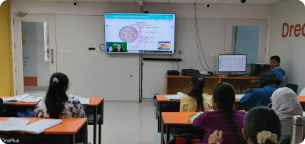
Access NCERT Solutions for Class 9 English Chapter 2- The Sound of Music
I. Answer these questions in a few words or a couple of sentences each.
1. How old was Evelyn when she went to the Royal Academy of Music?
Ans: Evelyn went to the Royal Academy of Music in London when she was just seventeen years old.
2. When was her deafness first noticed? When was it confirmed?
Ans: When Evelyn was around eight her deafness was first noticed but was confirmed when she turned eleven.
II. Answer each of these questions in a short paragraph.
1. Who helped her to continue with music? What did he do and say?
Ans: Even after being deaf Evelyn was encouraged to pursue music by Percussionist Ron Forbes. He taught her gradually and asked her to sense the sound in some other manner rather than listening to it.
2. Name the various places and causes for which Evelyn performs.
Ans: Evelyn gave solo performances at regular concerts internationally. She also performed for free in prisons and hospitals. Apart from that, she accorded high priority to classes for young musicians.
III. Answer the question in two or three paragraphs (100–150 words).
1. How does Evelyn hear music?
Ans: Evelyn was declared deaf at the age of eleven, yet she had a deep interest and taste in music. It was fascinating to watch her create beautiful pieces of music without actually being able to listen to it. She was encouraged by Rin Forbes to try to sense music without using her ears. He tuned two drums into two different notes and she indeed could feel the higher drum from her waist up and the lower tuned drum from her waist down.
Similarly, she played the xylophone. She could feel the vibration of the music from the stick into her fingertips. While performing on a wooden platform she removed her shoes to feel the vibrations from her feet, up her legs, and poured each cell of her into the music. It tingled her and the sensation helped her develop a deeper bond with music.
The Shehnai of Bismillah Khan Thinking about the text
I. Tick the right answer.
1. The (shehnai, pungi) was a ‘reeded noisemaker.’
Ans: The pungi was a ‘reeded noisemaker.’
2. (Bismillah Khan, A barber, Ali Bux) transformed the pungi into a shehnai.
Ans: A barber transformed the pungi into a shehnai.
3. Bismillah Khan’s paternal ancestors were (barbers, professional musicians).
Ans: Bismillah Khan’s paternal ancestors were professional musicians.
4. Bismillah Khan learnt to play the shehnai from (Ali Bux, Paigambar Bux, Ustad Faiyaaz Khan).
Ans: Bismillah Khan learnt to play the shehnai from Ali Bux.
5. Bismillah Khan’s first trip abroad was to (Afghanistan, U.S.A., Canada).
Ans: Bismillah Khan’s first trip abroad was to Afghanistan.
II. Find the words in the text that show Ustad Bismillah Khan’s feelings about the items listed below. Then mark a tick (✓ ) in the correct column. Discuss your answers in class.
Bismillah Khan’s Feelings about | Positive | Negative | Neutral |
1. Teaching Children Music | |||
2. The Film World | |||
3. Migrating to the U.S.A | |||
4. Playing at Temples | |||
5. Getting the Bharat Ratna | |||
6. The Banks of the Ganga | |||
7. Leaving Benaras and Dumraon |
Ans:
|
|
|
|
1. Teaching Children Music | ✓ | ||
2. The Film World | ✓ | ||
3. Migrating to the U.S.A | ✓ | ||
4. Playing at Temples | ✓ | ||
5. Getting the Bharat Ratna | ✓ | ||
6. The Banks of the Ganga | ✓ | ||
7. Leaving Benaras and Dumraon | ✓ |
III. Answer these questions in 30–40 words.
1. Why did Aurangzeb ban the playing of the pungi?
Ans: Pungi had a shrill and unpleasant sound and was disliked by Aurangzeb. Hence, he banned the playing of pungi.
2. How is a shehnai different from a pungi?
Ans: Shehnai is a hollow pipe made from a stem and has holes in its body. It has a better sound quality than pungi.
3. Where was the shehnai played traditionally? How did Bismillah Khan change this?
Ans: Shehnai was played in royal courts, temples, and weddings. Ustaad Bismillah Khan changed the tradition by bringing it onto the classical stage.
4. When and how did Bismillah Khan get his big break?
Ans: In 1938 when All India Radio was opened in Lucknow, Bismillah Khan was invited to perform shenai on the radio. He got his big break then and soon became an often-heard player on the radio.
5. Where did Bismillah Khan play the shehnai on 15 August 1947? Why was the event historic?
Ans: Bismillah Khan played Raag Kafi from the Red Fort on 15 August 1947 and it was a historical event because India received independence on that day from the British empire.
6. Why did Bismillah Khan refuse to start a shehnai school in the U.S.A.?
Ans: Bismillah Khan loved his country and would not leave it for any monetary gains. he felt rooted living near Benaras, the River Ganga. He declined his student’s request to start a shehnai school in U.S.A.
7. Find at least two instances in the text which tell you that Bismillah Khan loves India and Benaras.
Ans: Bismillah Khan loved his country. He declined a student’s offer to start a shehnai school in U.S.A. since it would keep him away from his country. He also refused Shekhar Gupta’s offer to move to Pakistan during partition and was stern ot never leave Benaras.
never leave Benaras.
Thinking about Language
I. Complete the following sentences. Beginning with a to-verb, try to answer the questions in brackets.
1.The school sports team hopes______________ (What does it hope to do?)
Ans: The school sports team hopes to win the match.
2.We all want ____________ (What do we all want to do?)
Ans: We all want to go to succeed in our life.
3. They advised the hearing-impaired child’s mother ____________ (What did they advise her to do?)
Ans: They advised the hearing-impaired child’s mother to consult a doctor.
4. The authorities permitted us to ____________(What did the authorities permit us to do?)
Ans: The authorities permitted us to construct the building.
5. A musician decided to ____________ (What did the musician decide to do?)
Ans: A musician decided to open a school for children.
II. From the text on Bismillah Khan, find the words and phrases that match these definitions and write them down. The number of the paragraph where you will find the words/phrases has been given for you in brackets.
1.the home of royal people (1) _____________
Ans: the royal residence
2.the state of being alone (5) _____________
Ans: solitude
3.a part which is absolutely necessary (2) ____________
Ans: indispensable
4.to do something not done before (5) ____________
Ans: invent
5.without much effort (13) _______________
Ans: effortlessly
6.quickly and in large quantities (9) ____________and _____________
Ans: thick and fast
III. Tick the right answer.
1. When something is revived, it (remains dead/lives again).
Ans: When something is revived, it lives again.
2. When a government bans something, it wants it (stopped/started).
Ans: When a government bans something, it wants it stopped.
3. When something is considered auspicious, (welcome it/avoid it).
Ans: When something is considered auspicious, welcome it.
4. When we take to something, we find it (boring/interesting).
Ans: When we talk about something, we find it interesting.
5. When you appreciate something, you (find it good and useful/find it of no use).
Ans: When you appreciate something, you find it good and useful.
6. When you replicate something, you do it (for the first time/for the second time).
Ans: When you replicate something, you do it for the second time.
7. When we come to terms with something, it is (still upsetting/no longer upsetting).
Ans: When we come to terms with something, it is no longer upsetting.
IV. Consult your dictionary and complete the following table. The first one has been done for you.
Objective | Only Before Noun | Not Before Noun | Both Before and After the Verb Be |
Indispensable | ✓ | ||
Impressed | |||
Afraid | |||
Outdoor | |||
Paternal | |||
Countless | |||
Priceless |
Use these words in phrases or sentences of your own.
|
|
|
|
Indispensable | ✓ | ||
Impressed | ✓ | ✓ | |
Afraid | ✓ | ✓ | |
Outdoor | ✓ | ||
Paternal | ✓ | ||
Countless | ✓ | ||
Priceless | ✓ |
Some sentences using these adjectives are:
1. She is indispensable for the successful completion of the project.
2. Sunita was impressed by my singing.
3. He is afraid of the dark.
4. I enjoy the company of my paternal uncle.
5. Gennie was showered with countless gifts.
6. My grandmother gave me a priceless piece of advice.
I. Imagine the famous singer Kishori Amonkar is going to visit your school. You have been asked to introduce her to the audience before her performance. How would you introduce her? Here is some information about Kishori Amonkar you can find on the Internet. Read the passage and make notes of the main points about: • her parentage • the school of music she belongs to • her achievements • her inspiration • awards
Padma Bhushan Kishori Amonkar, widely considered the finest female vocalist of her generation, was born in 1931, the daughter of another great artist, Smt. Mogubai Kurdikar. In her early years, she absorbed the approach and repertoire of her distinguished mother’s teacher Ustad Alladiya Khan. As her own style developed, however, she moved away from Alladiya Khan’s ‘JaipurAtrauli gharana’ style in some respects, and as a mature artist her approach is usually regarded as an individual, if not unique, variant of the Jaipur model. Kishori Amonkar is a thinker, besotted by what she calls the mysterious world of her raagas. She dissects them with the precision of a perfectionist, almost like a scientist, until the most subtle of shades and emotions emerge and re-emerge. She is very much inspired by the teachings of the ancient Vedic sages, written at a time when vocal music was highly devotional in character. This 2024-25 2024-25 The Sound of Music / 29 soul searching quality of her music, coupled with a very intellectual approach to raaga performance has gained her quite a following in India and has helped to revive the study of khayal. Significant awards bestowed on this artist include the Sangeet Natak Akademi Award (1985), the Padma Bhushan (1987), and the highly coveted Sangeet Samradhini Award (considered one of the most prestigious awards in Indian Classical Music) in 1997.
II. Use your notes on Kishori Amonkar to introduce her to an imaginary audience.
You may use one of the following phrases to introduce a guest:
I am honoured to introduce…/I feel privileged to introduce…/We welcome you…
Ans: I feel privileged to introduce you to one of the greatest female vocalists of her time, Kishori Amonkar. A recipient of the Padma Bhushan, she was born in 1931 to the legendary Smt. Mogubai Kurdikar. Kishori Amonkar is renowned for her deep exploration of ragas, meticulously unveiling their most nuanced expressions. Her artistry is profoundly influenced by the wisdom of Vedic sages. Throughout her illustrious career, she has received numerous prestigious awards, including the Sangeet Natak Akademi Award in 1985, the Padma Bhushan in 1987, and the esteemed Sangeet Samradhini Award in 1997.
“If you work hard and know where you’re going, you’ll get there,” says Evelyn Glennie. You have now read about two musicians, Evelyn Glennie and Ustad Bismillah Khan. Do you think that they both worked hard? Where did they want to ‘go’? Answer these questions in two paragraphs, one on each of the two musicians.
Ans: If we work hard no one can stop us from achieving our dreams and we get there. Evelyn Glennie had a love for music in the deepest corners of her heart and worked hard to achieve her dreams. She was deaf and often discouraged for her pursuit and love for music. It was her teacher Ron Forbes who encouraged her to pursue music and taught her to identify music vibrations from different parts of her body. She worked and climbed her way up to the Royal Academy of music. She won various Academy awards and in 1991 presented with the Soloist of the Year Award. With her determination, she not only excelled in the field but also brought laurels to her country.
Ustad Bismillah Khan had an inclination towards music from a very young age. He was given training in music by his uncle. He belonged to a family of musicians and his pursuit was encouraged. He practiced hard and invented ragas for shehnai that were considered beyond the scope. His contribution to Indian classical music was commendable and he was awarded various national awards including Bharat Ratna.
Benefits of NCERT Solutions for the Sound of Music Class 9
NCERT Solutions for Class 9 English Beehive Chapter 2, The Sound of Music Question answers are very beneficial to the students as:
The Answers are accurate and to the point, which helps the students in their exam preparation.
The Solutions follow the guidelines and standards of CBSE, which ensures the quality of the answers.
The solutions to Beehive Class 9 Chapter 2 are prepared by subject matter experts at Vedantu who hold years of experience in the field, thus ensuring the accuracy of these solutions.
The NCERT Solutions to Class 9th English Chapter 2 are given in simple language, which helps students grasp and understand the answers easily.
The Class 9th English Chapter 2 offers students all the required answers and info. This helps in mitigating any additional irrelevant content that students might come across.
The NCERT Solutions to Class 9 English Beehive Chapter 2 Question Answers use real-life examples to reach the students and help them empathise more with the highlights of the chapter.
NCERT solutions for class 9 English Beehive Chapter 2 Question Answers are available on Vedantu. Students can download it for free from Vedantu’s official website and mobile application. They can also sign up for live classes and doubt-clearing sessions.
Now that you have a good grasp on the NCERT Solutions for the Sound of Music Question Answers, you can use NCERT English Class 9 Chapter 2 Summary as an additional material to further boost your study process.
Conclusion
In conclusion, the NCERT Solutions for Class 9 English Chapter 2 - "The Sound of Music" offers a comprehensive understanding of the power and influence of music in our lives. Through this chapter, students are introduced to the life story of Maria von Trapp and her deep connection with music. The solutions provide insights into the transformative effect of music, its ability to evoke emotions, and its capacity to bring people together.
The chapter also explores the importance of preserving cultural heritage through music, as demonstrated by the von Trapp family's dedication to sharing their folk music traditions. Moreover, the solutions highlight the significance of music education in schools and its positive impact on children's cognitive, emotional, and social development. Students are encouraged to embrace music as a means of self-discovery and creative expression.
Chapter-wise Links for NCERT Solutions for Class 9 English Beehive
Links for NCERT Solutions: Class 9 English Beehive all Other Chapters |
|
|
|
|
|
|
|
|
Chapter-wise Links for NCERT Solutions for Class 9 English Beehive (Poems)
Links for NCERT Solutions: Class 9 English Beehive (Poem) |
|
|
|
|
|
|
|
|

FAQs on NCERT Solutions for Class 9 English Beehive Chapter 2: The Sound of Music
1. What is the Topic of Discussion in class 9th English Chapter 2?
The topic of discussion in Class 9th English Chapter 2 is ‘The Sound of Music’. In this particular chapter, students learn about two maestros of music, who have contributed significantly to their respective genres. Evelyn Glennie and Ustad Bismillah Khan are the two eminent musicians, whose life and work has been portrayed here. The former, Evelyn Glennie gradually lost her hearing, and she managed to win that struggle to become a successful percussion artist. A portion of her biography is used here as the text. Ustad Bismillah Khan, on the other hand, brought the relatively unknown music instrument Shehnai at the world stage. His contribution to Hindustani classical music is immense.
2. Where can students find the NCERT Solutions for Class 9 English Beehive Chapter 2 Question Answer?
Vedantu is the best educational website to refer to for all your doubts in any subject. Vedantu caters to students of all classes. Similarly, if you are looking for solutions to The Sound of Music which is the 2nd chapter of Beehive, check out Vedantu NCERT CBSE Class 9 English Beehive Chapter 2 Solutions. You will find answers to most of the common questions asked in the exam here.
3. Should I pay to download the NCERT Solutions for Class 9 English Chapter 2 Question Answer PDF?
The best part about Vedantu is that it provides excellent content and services for free. It comes as no surprise that Vedantu is trusted by millions of students. You only need to pay a very nominal amount to Vedantu in case you are opting for any teaching course. You can access the solutions on the page NCERT CBSE Class 9 English Beehive Chapter 2 on the Vedantu website or on the Vedantu app at free of cost.
4. Who is Evelyn Glennie?
Dame Evelyn Elizabeth Ann Glennie is a renowned percussionist of Scottish origin. She can play many other instruments as well much to the surprise of most people. Despite being completely deaf, this international icon did not let her disability get in the way of her talent. The chapter Sound of Music in the NCERT Class 9 Beehive textbook tells her story and inspires people to rise beyond their challenges.
5. What is the story The Sound of Music about?
Chapter 2 in the Beehive Class 9 textbook, namely The Sound of Music, is divided into two parts. The first part talks about Evelyn Glennie while the second part is about Ustad Bismillah Khan. Students get to learn about the talents of these two versatile musicians along with the hardships they overcame in life. Their stories are touching and are bound to inspire all readers.
6. What type of questions are important from Chapter 2 of Beehive- The Sound of Music?
Usually, English papers are set in such a way that they test students’ writing and reading skills. The questions asked require you to think both creatively and analytically. Both short and long questions can come from Chapter 2 of Beehive- The Sound of Music. In case you need help finding the answers to some exercises and would like to know how to frame answers, visit the page NCERT Solutions for Class 9 English.
7. I am not able to understand the Sound of Music Question Answers. What do I do?
It is totally normal for you or anyone else to not understand the solutions or topics covered in the NCERT Solutions. Sometimes chapters can be complex and some emotions conveyed by the author may not fully reach you. Do not panic, take a break. You can spend some time doing some leisure activity or hobby of your choice or just get some rest. Come back later, fresh and ready with a clear mind. Good luck.
8. How did the Shehnai come to be in the Class 9th English Chapter 2?
The Shehnai was made from another instrument called the ‘Pungi’. The Pungi had a terrible noise, which caused Emperor Aurangzeb to ban it. A barber, the took this instrument, drilled some holes into it and elongated the body, which gave birth to the ‘Shehnai’.
9. Is it enough to only study the Class 9 English Chapter 2 Question Answer PDF?
The NCERT Solutions to the Sound of Music, Class 9 English Chapter 2 covers all the important textbook questions and answers that are sure to appear in the examinations. While these cover almost all the questions and answers, it never hurts to study more and cover additional topics. You can take help from Vedantu and discover additional supplements such as previous year's question papers or important revision notes.

NCERT Solutions for Class 9th: Ch 2 People as Resource Economics
Ncert solutions for class 9th: ch 2 people as resource economics social studies (s.st), contact form.

9th class SA 2 question paper with key answer
- Post author By scoringtarget
- Post date 20/02/2023
- Categories In 9th class
9th class SA 2 question paper with key answer. Summative assessment 2 based on Kalika Chetarike for class 9.
SA 2 question paper with key answer for 9 th class. 9 th standard SA 2 question paper with key answer. 9 th class SA 2 question paper based on Kalika chetarike .
To get more video notes for class 9, visit our YouTube channel. This channel is very useful for 9 th standard exam preparation.

Subject: English
Class: 9 th
Medium: Kannada
State: Karnataka
Sub-topic: Question paper with key
File type: PDF
Answers: Given key answer
Share: Sharable link is given
Copyright: Protected
Download: Given download link
Print Enable: Yes
Editable Text: No
Copy Text: No
Scanned Copy: Yes
Password Encrypted: No
File Size Reduced: No
Quality: High
Download Link Available: Yes
File View Available: Yes
Click to download SA 2 question paper
Click to download key answer
Watch this video for the explanation of SA 2 question paper with key answer.
9 th class SA 2 question paper based on Kalika chetarike
Class : 9 th SUMMATIVE ASSESSMENT – 2 Max. marks : 80
Subject: English Level 1 Timing : 3 hours
Q.I Choose the polite forms for these sentences. 4×1=4
1. The teacher wants Ravi to come in. What can the teacher say?
a. Please help me. b. Please come in. c. Excuse me
Answer : ___________________
2. Charan needs Ravi’s help. What can Charan say?
a. Please help me. b. You are welcome c. I’m sorry
3. Write the past tense of the words:
a. Say – _____________
b. Request – _____________
4. Are the underlined nouns common or proper?
a. The Caribbean Sea has many islands.
Answer : ______________
b. My sister’s name is Sheela.
Answer : _____________
Q. II Do as directed. 6×1=6
5. Underline the pronouns in the sentences.
We were planning to watch the movie today.
Answer : __________________
6. Underline the adjectives in the given sentences:
The parrot is a beautiful bird.
7. Fill in the blanks with has/ have.
Priya ____________ a book.
8. Fill in the blanks with suitable conjunction.
My grandfather_____________ grandmother live in Mysore.
9. Fill in the blanks with the correct forms of the adjectives given in the brackets:
A tiger runs _____________ (fast, faster, fastest) than an elephant.
10. Write indirect speech.
Kiran said to Reshma, “He is enjoying his new job”.
Answer : __________________________________________________________________________.
Q. III Read the paragraph and rewrite replacing the repeated noun with suitable pronouns: 1×4=4
Mahesh is a bus driver in Mysore. Mahesh works in KSRTC. Mahesh drives the bus carefully.
Mahesh is friendly with the passengers. The passengers love to speak to Mahesh. Mahesh
has a small family. Mahesh lives happily with his family.
No related posts.
- Bihar Board
CFA Institute
Srm university.
- Shiv Khera Special
- Education News
- Web Stories
- Current Affairs
- School & Boards
- College Admission
- Govt Jobs Alert & Prep
- GK & Aptitude
- General Knowledge
General Knowledge 2024 - GK Questions and Answers

Brain Teaser: Can You Spot the Imposter? Find the Hidden Number 5 Among the S's
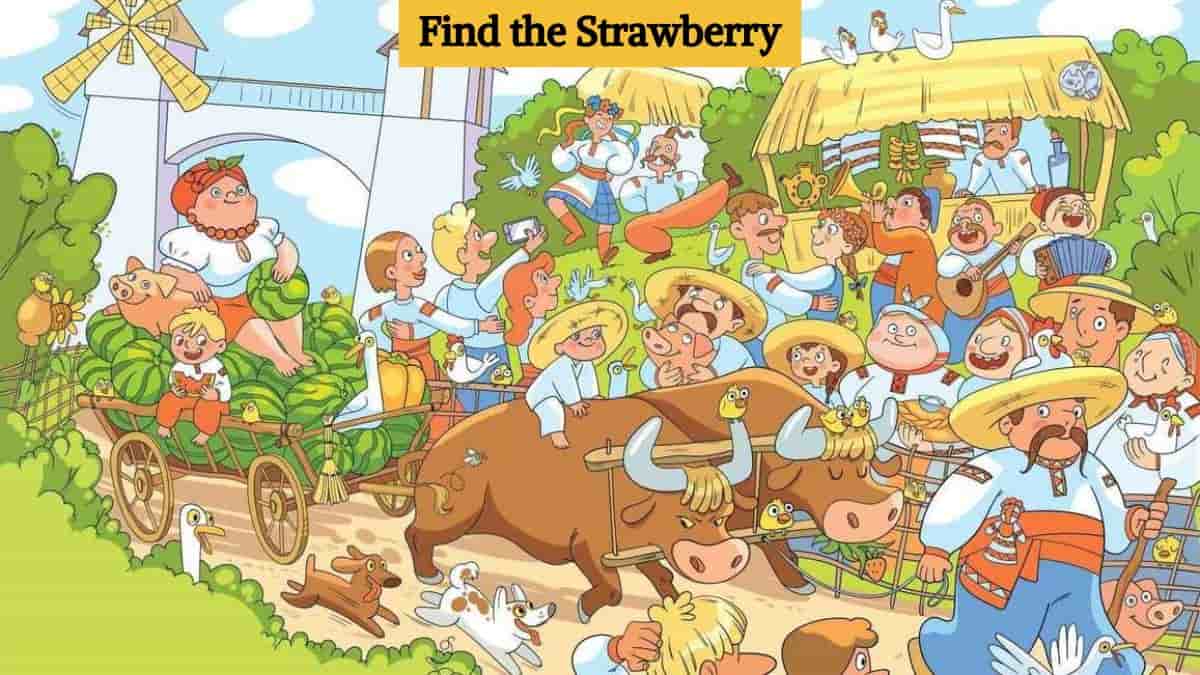
Optical Illusion Eye Test: Find the hidden strawberry in 8 seconds!
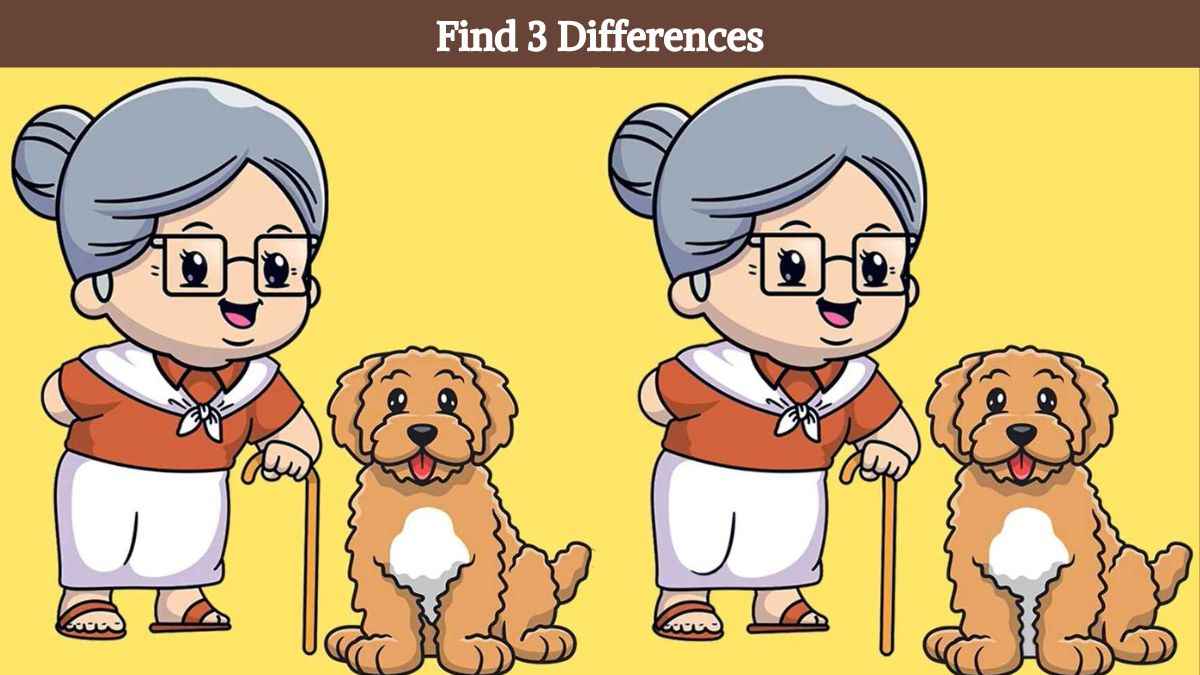
Find 3 differences between the grandma and her dog pictures in 10 seconds!

GK Quiz on Microsoft: A Quiz on Microsoft's History and Products
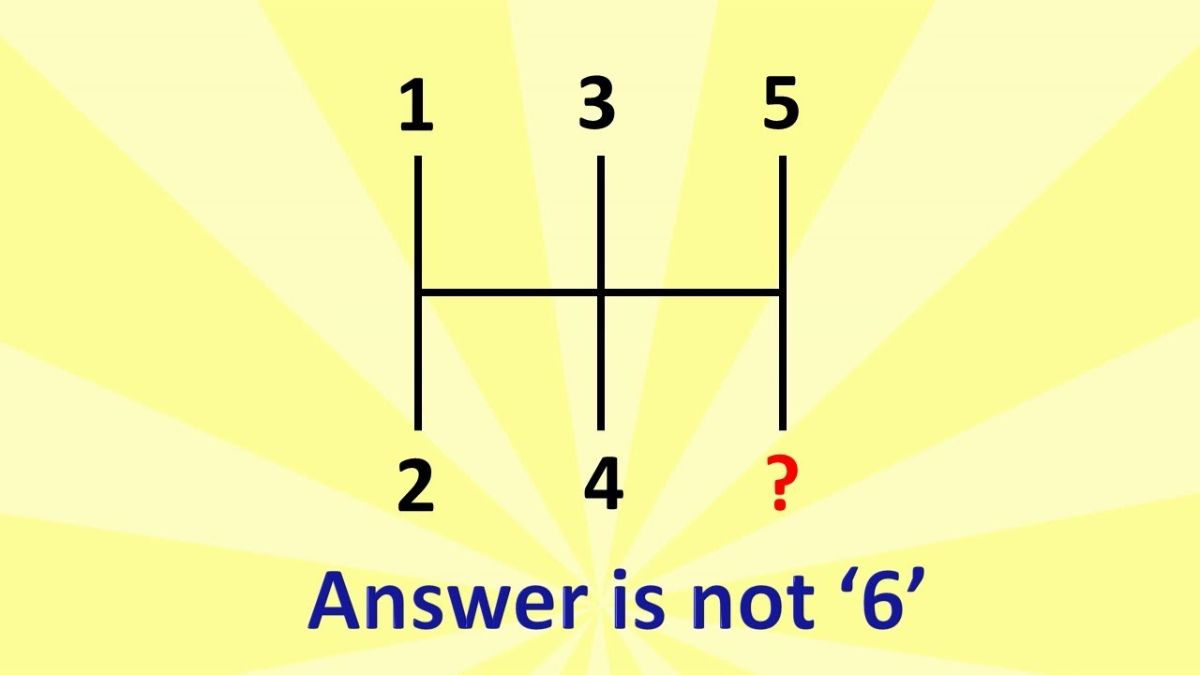
Brain Teaser IQ Test: Only The Smartest 5% Can Replace The Question Mark In 8 Seconds! (Answer Is Not 6)
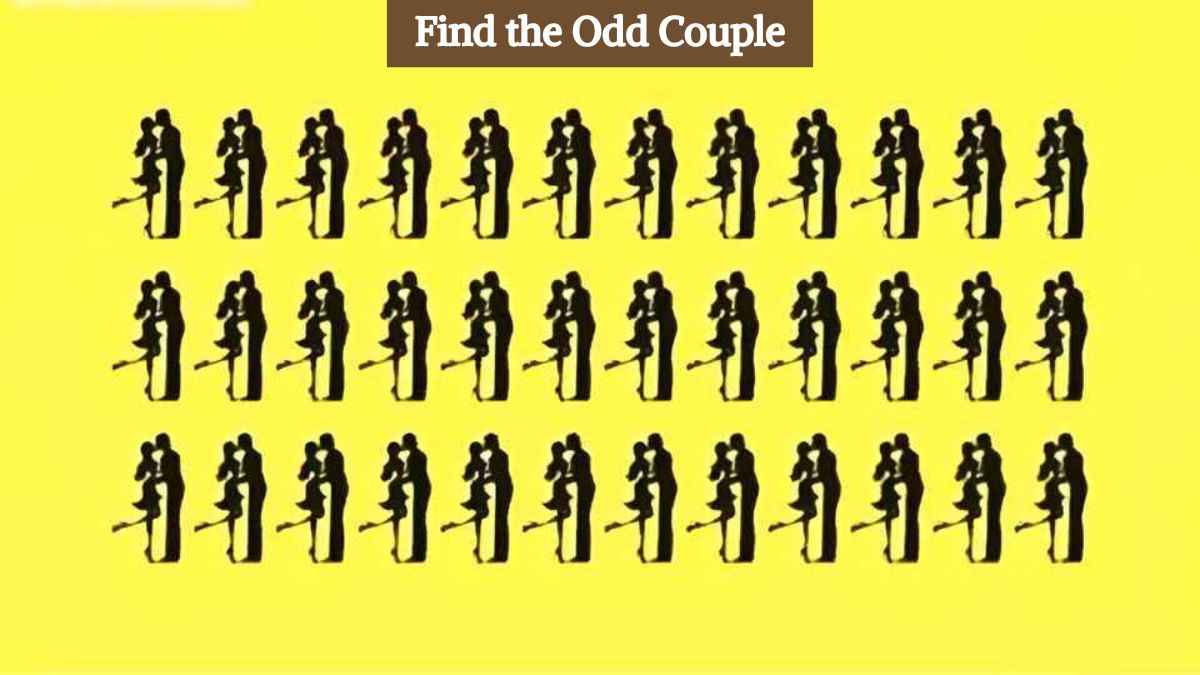
Optical Illusion: Find the odd couple in the picture in 7 seconds!
- General Knowledge Quiz

GK Quiz on WWDC: Are You a WWDC Expert? Take Our Quiz to Find Out!
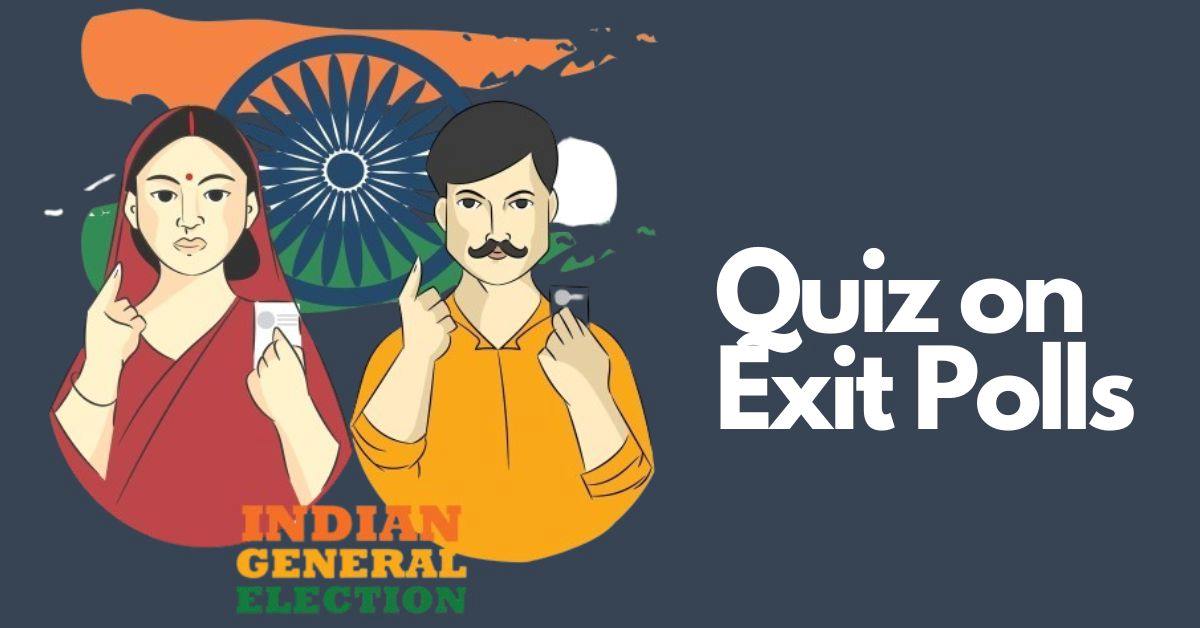
GK Quiz on Exit Polls: The Ultimate Exit Polls Quiz to Test if Are You an Expert
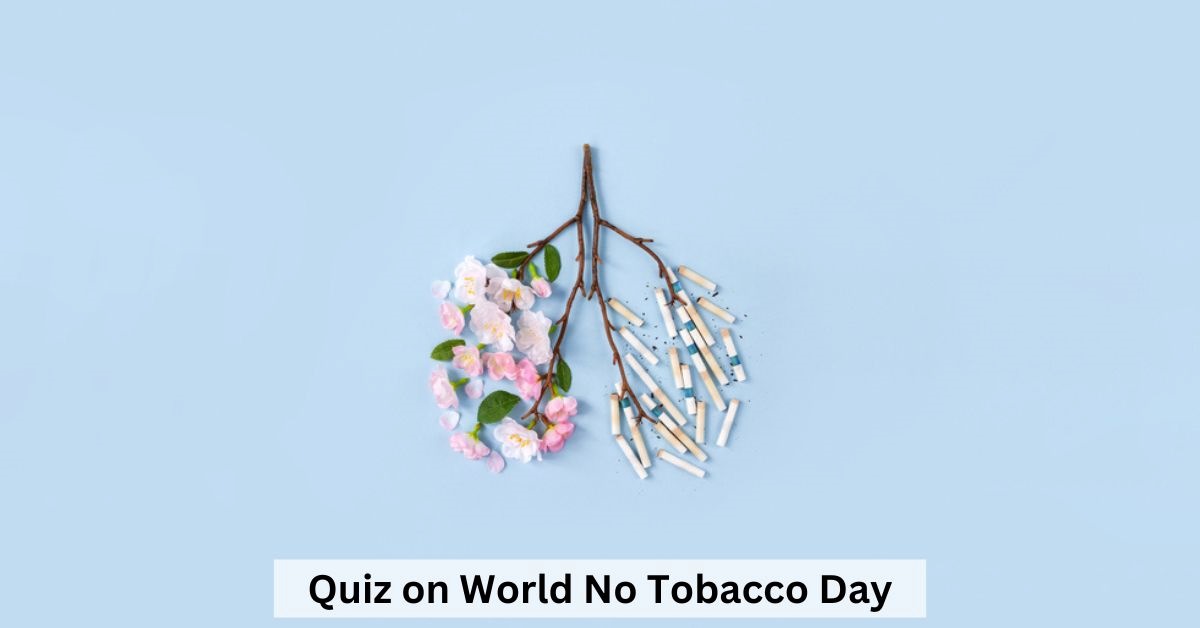
World No Tobacco Day Quiz Questions and Answers to Test Your Knowledge
- Famous Personalities

Top 41+ MS Dhoni Quotes for Inspiration and Motivation
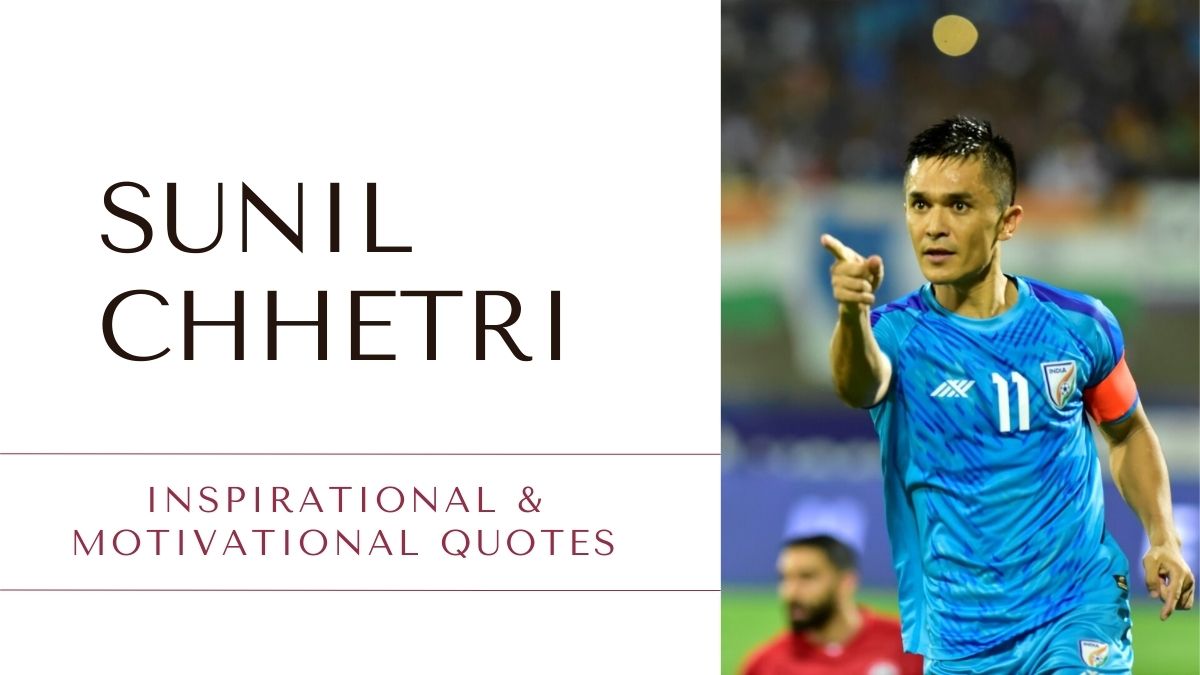
Top 35+ Sunil Chhetri Quotes For Inspiration And Motivation
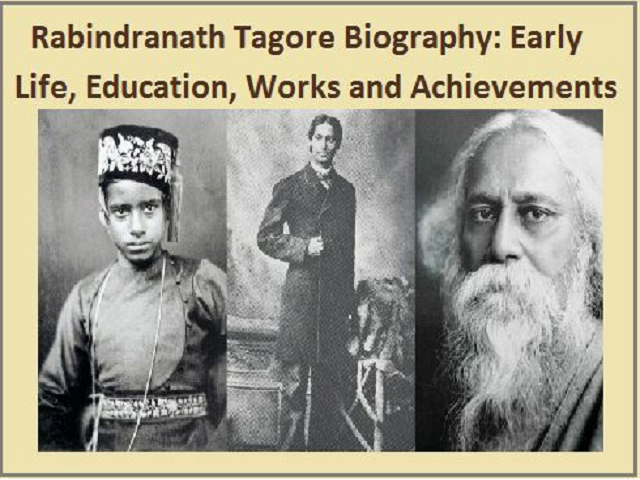
Rabindranath Tagore Biography: Early Life, Education, Literary Work, Achievements & More
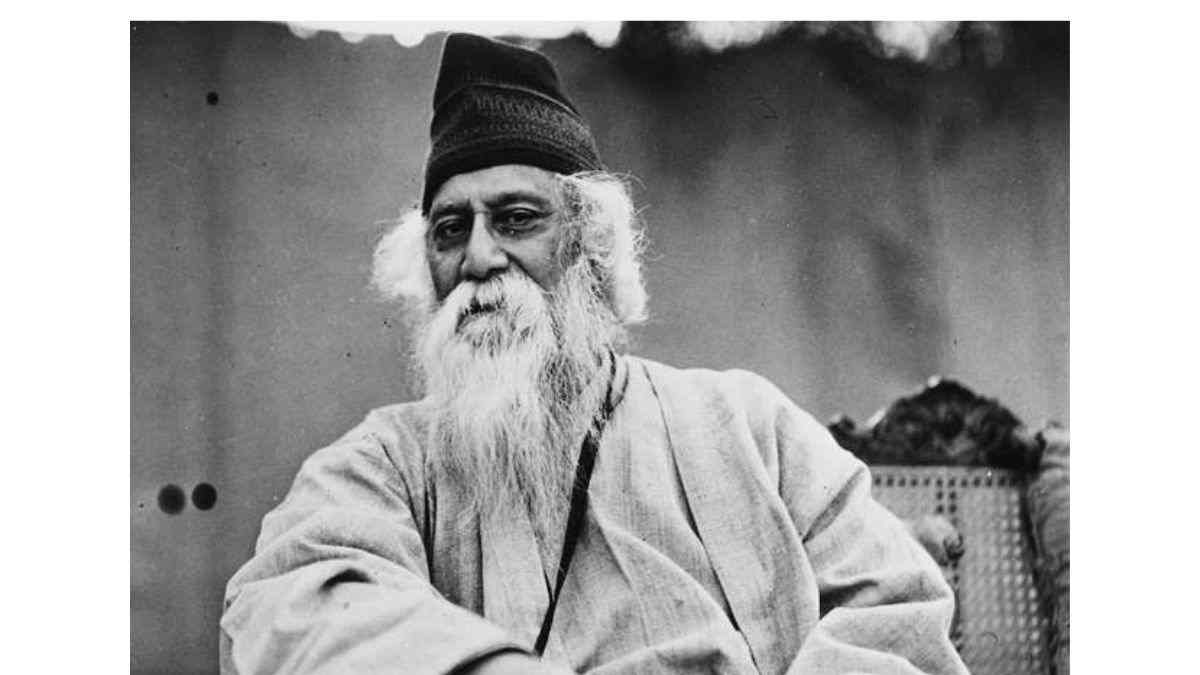
Rabindranath Tagore Jayanti 2024: Wishes, Messages, WhatsApp & Facebook Status, Quotes, Facts & More
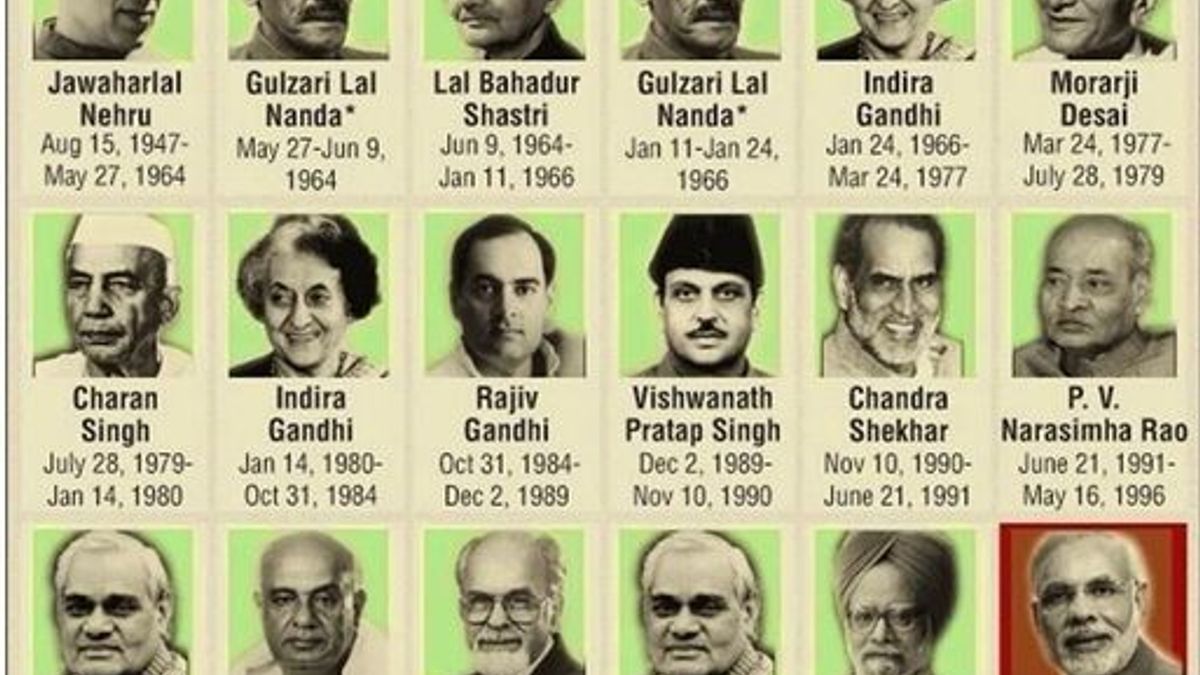
List of All Prime Ministers of India (1947-2024)
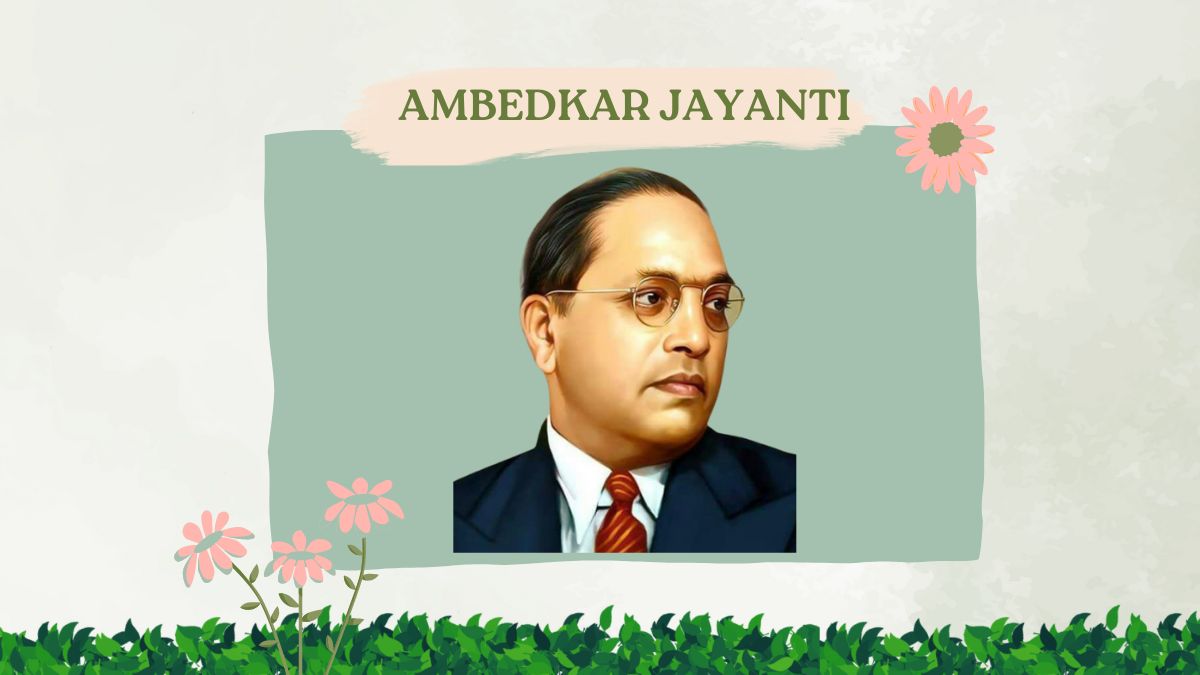
Ambedkar Jayanti 2024: Know 35 Amazing Facts about Dr. B. R. Ambedkar
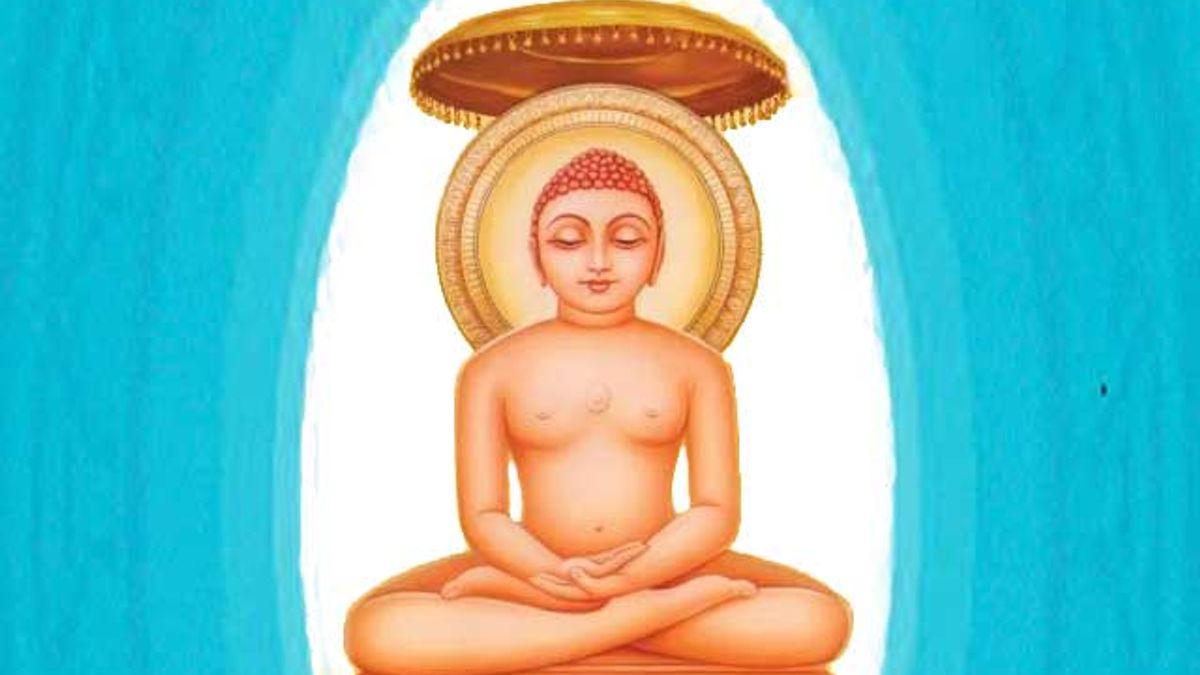
Summary on Jainism: Teaching of Mahavira | Spread of Jainism
![[Updated] Jharkhand CM List: Chief Ministers of Jharkhand, Name and Tenure [Updated] Jharkhand CM List: Chief Ministers of Jharkhand, Name and Tenure](https://img.jagranjosh.com/imported/images/E/GK/List-of-Chief-Ministers-of-Jharkhand.png)
[Updated] Jharkhand CM List: Chief Ministers of Jharkhand, Name and Tenure
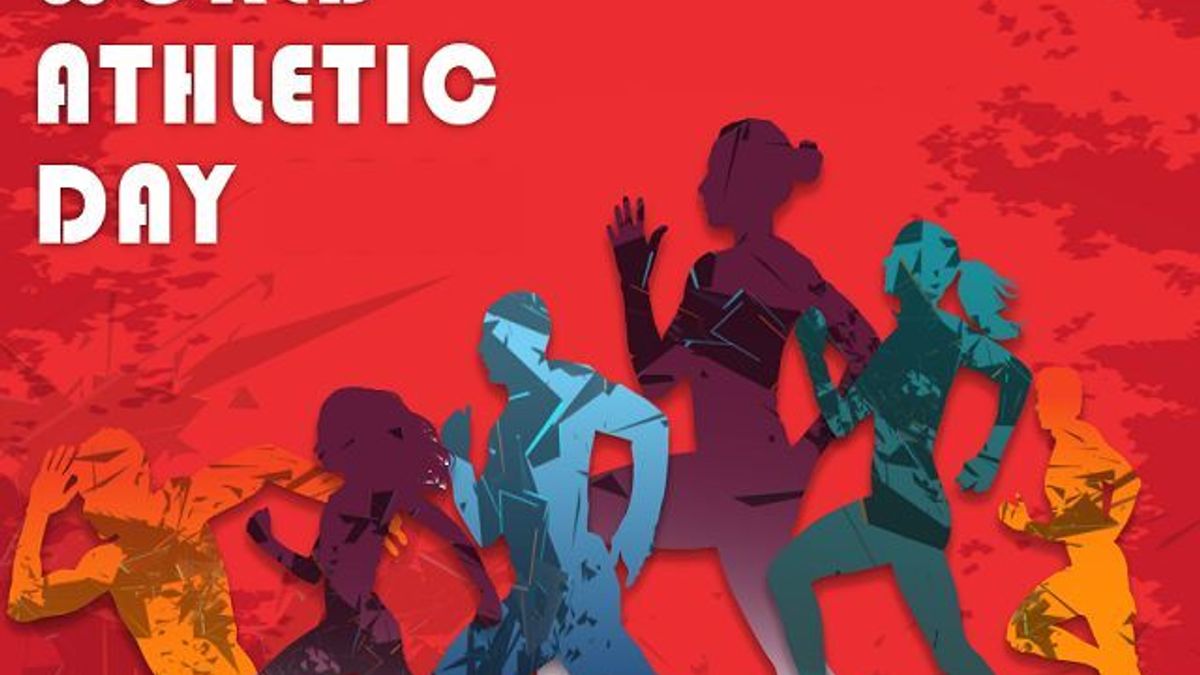
World Athletics Day 2024: Date, History, Theme, Objectives,Celebration & More
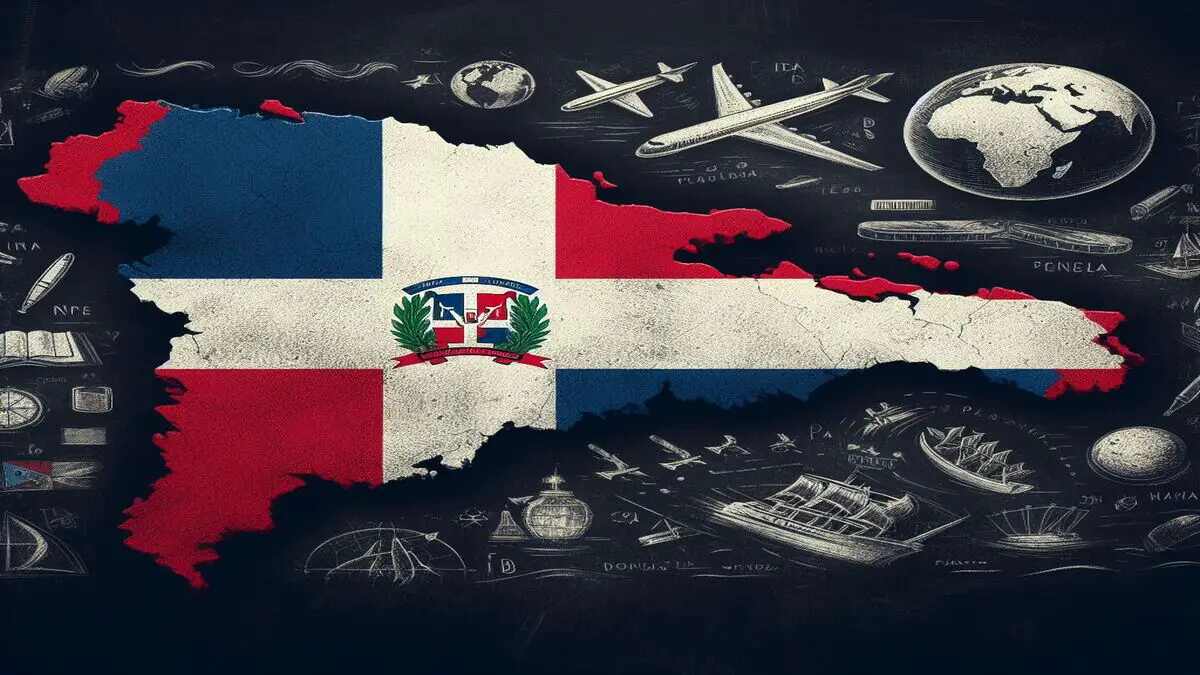
Where Is the Dominican Republic? Maps, History, Heritage Sites And More

Map of Tennessee (TN): Check GeograpTNcal Areas, Population, Cities and Towns
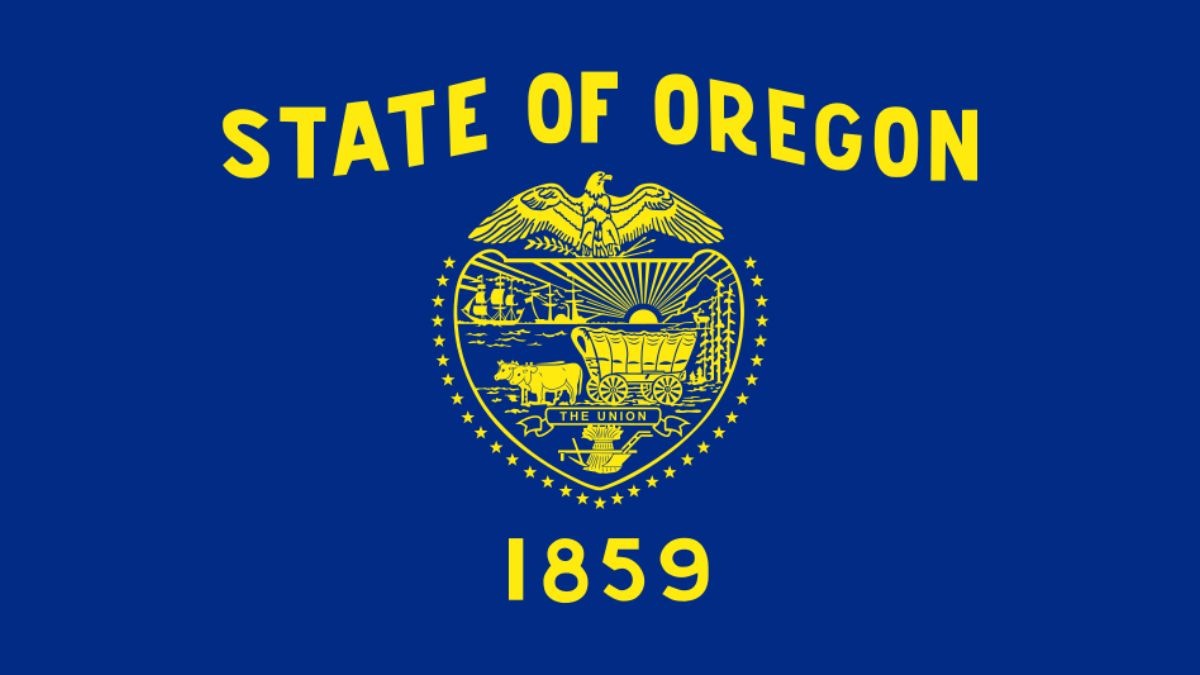
Map of Oregon (OR): Check GeograpORcal Areas, Population, Cities and Towns
- GK for Exams

National Technology Day 2024: Date, Theme, History, Significance & More
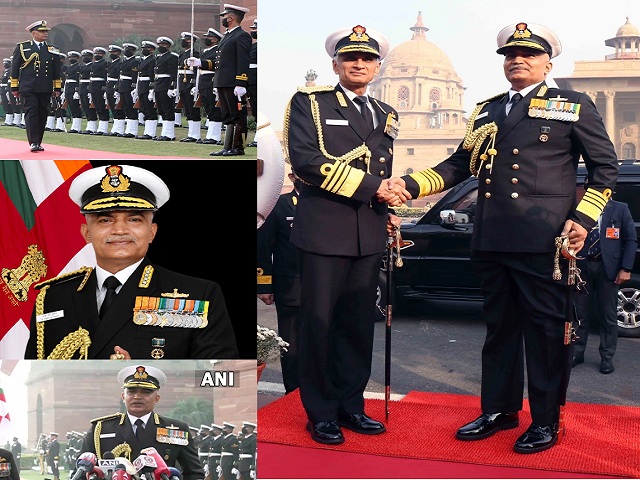
List of Chief of the Naval Staff of India (1947 - 2024)
- India Election Result 2024
- Lok Sabha Election Results 2024
- Election Commission of India
- India T20 World Cup Squad 2024
- ECI Results 2024
- T20 World Cup 2024 Points Table
- UP Election Result 2024
- Bihar Election Result 2024
- AP Election Results 2024
- Rajasthan Election Result 2024
General Knowledge by Category
- Geography GK
- Important Days and Events
- Indian Polity GK
- Environment & Ecology
- Art & Culture
- GK Questions
- Miscellaneous
हिंदी सामान्य ज्ञान
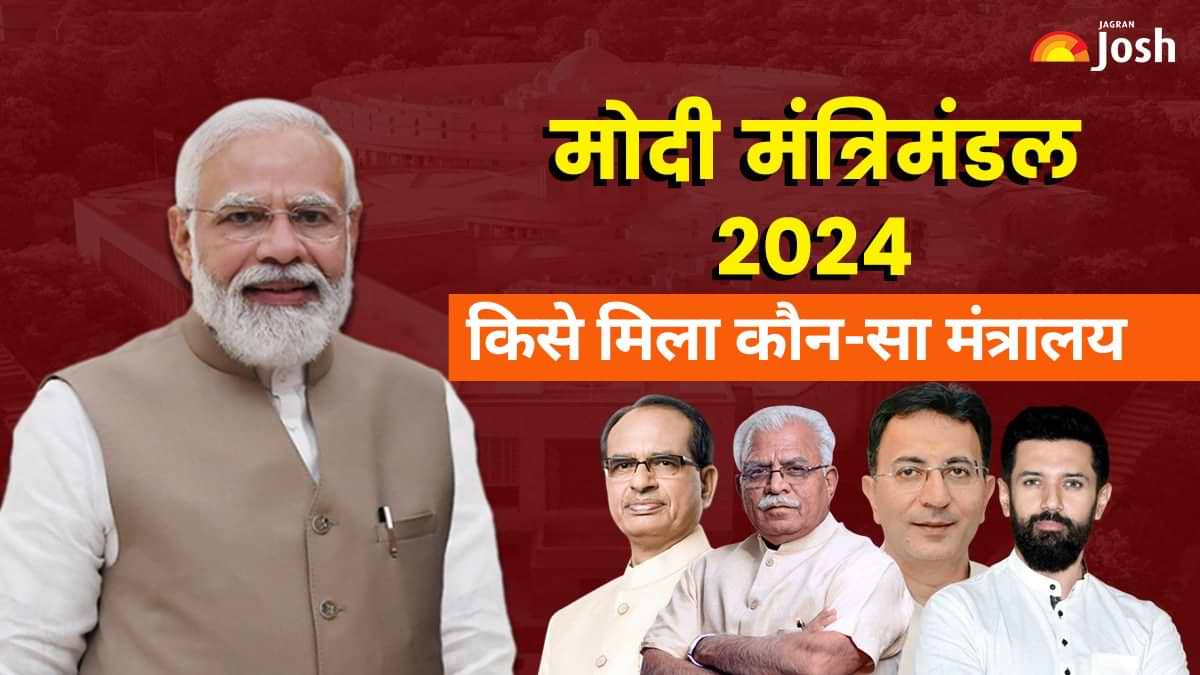
Modi Cabinet 2024 with Portfolios: किसे मिली किस मंत्रालय की कमान, यहां देखें हर एक पोर्टफोलियो
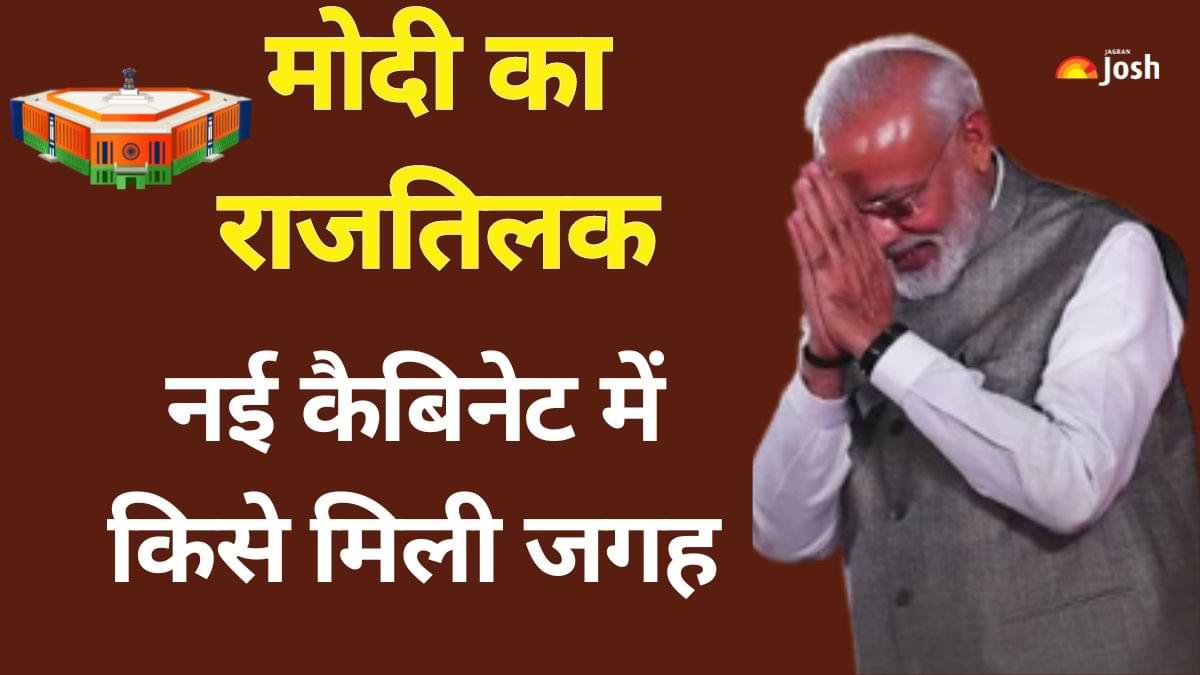
PM Modi Cabinet 2024: मोदी का राजतिलक, नई कैबिनेट में किसे मिला कौन-सा मंत्रालय, यहां देखें पूरी लिस्ट
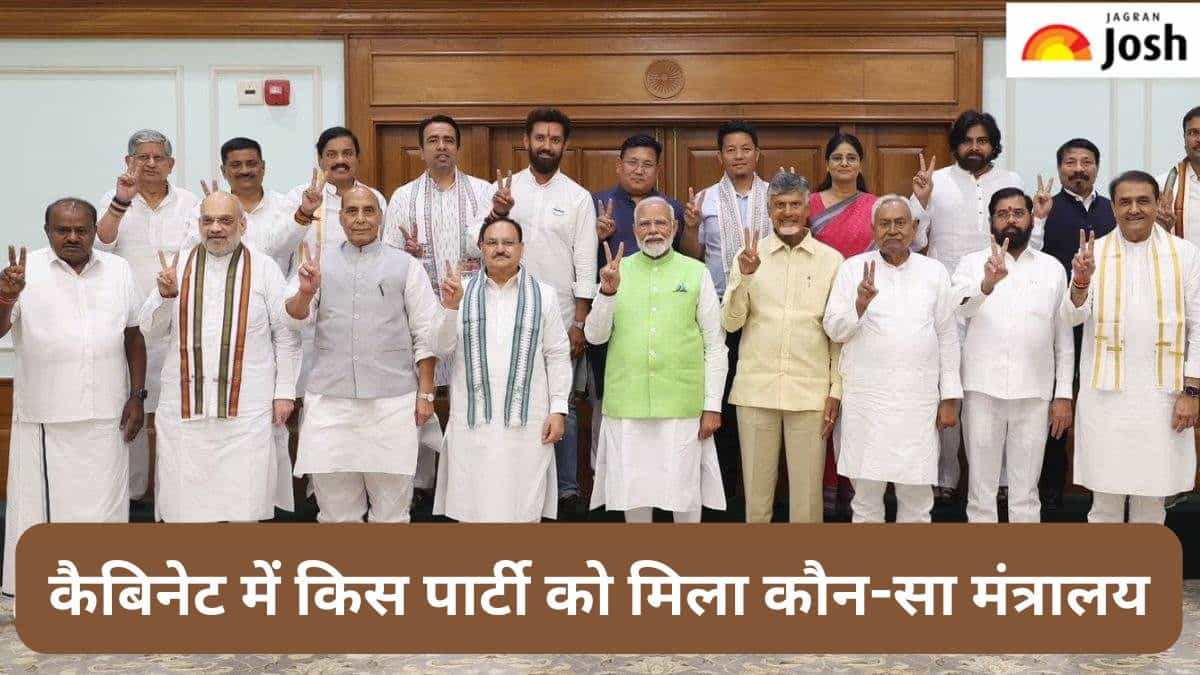
Modi Cabinet Ministers List 2024: मोदी 3.0 में किस सांसद को मिला कौन-सा मंत्रालय, यहां देखें पूरी लिस्ट
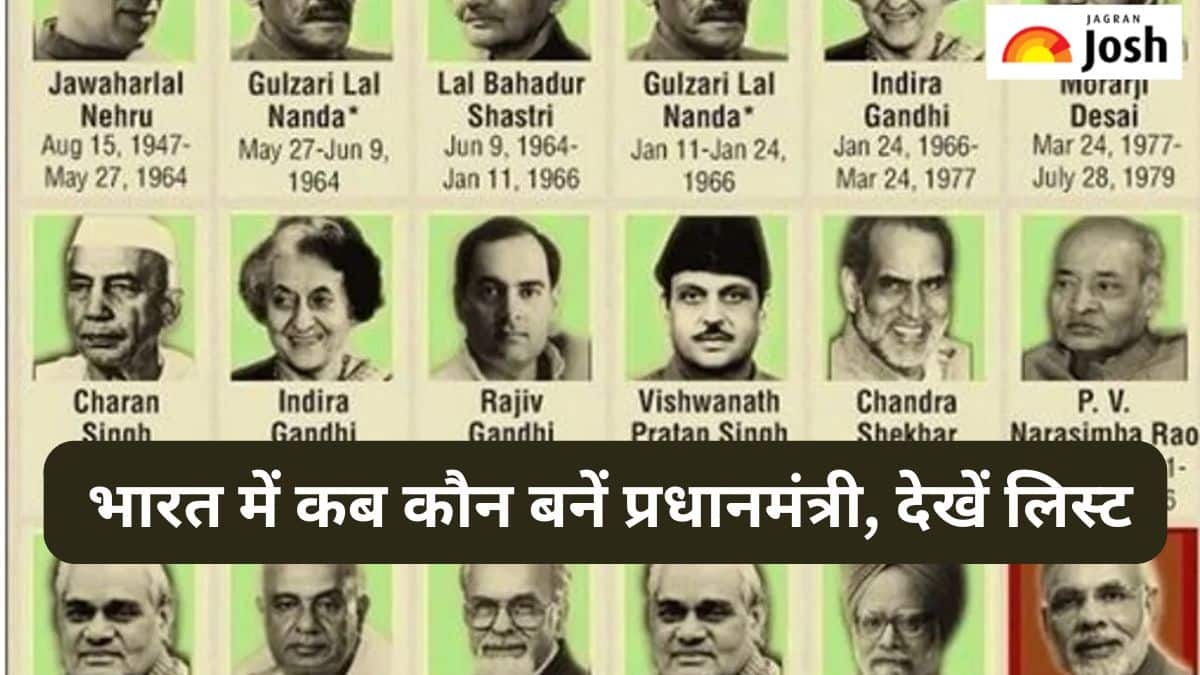
भारत में कब कौन बनें प्रधानमंत्री, यहां देखें पूरी लिस्ट

General Knowledge (GK) for Exams
- UPSC GK Questions
- GK for Banks Exams
- State PSC GK
General Knowledge in Hindi
- एनवीरोनेमेंट
- आर्ट & कल्चर

The History Behind the Dough: Celebrating National Donut Day 2024

Biden's Asylum Ban at US-Mexico Border: What is it and what does it do?

Top 10 Most Valuable Clubs Major League Soccer 2024

Boston Celtics: Current Stats, Schedule, NBA Championships And More

List Of Copa América Winners (1916-2021)
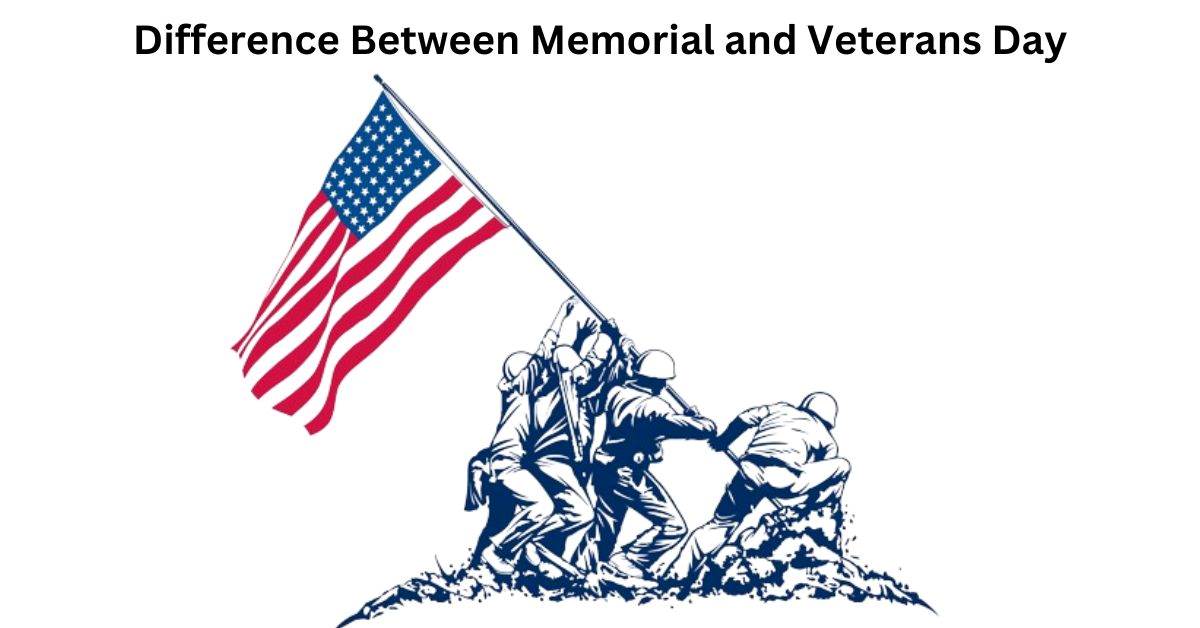
Memorial Day vs Veterans Day: Know the Difference Between Them Here!
Education Web Stories
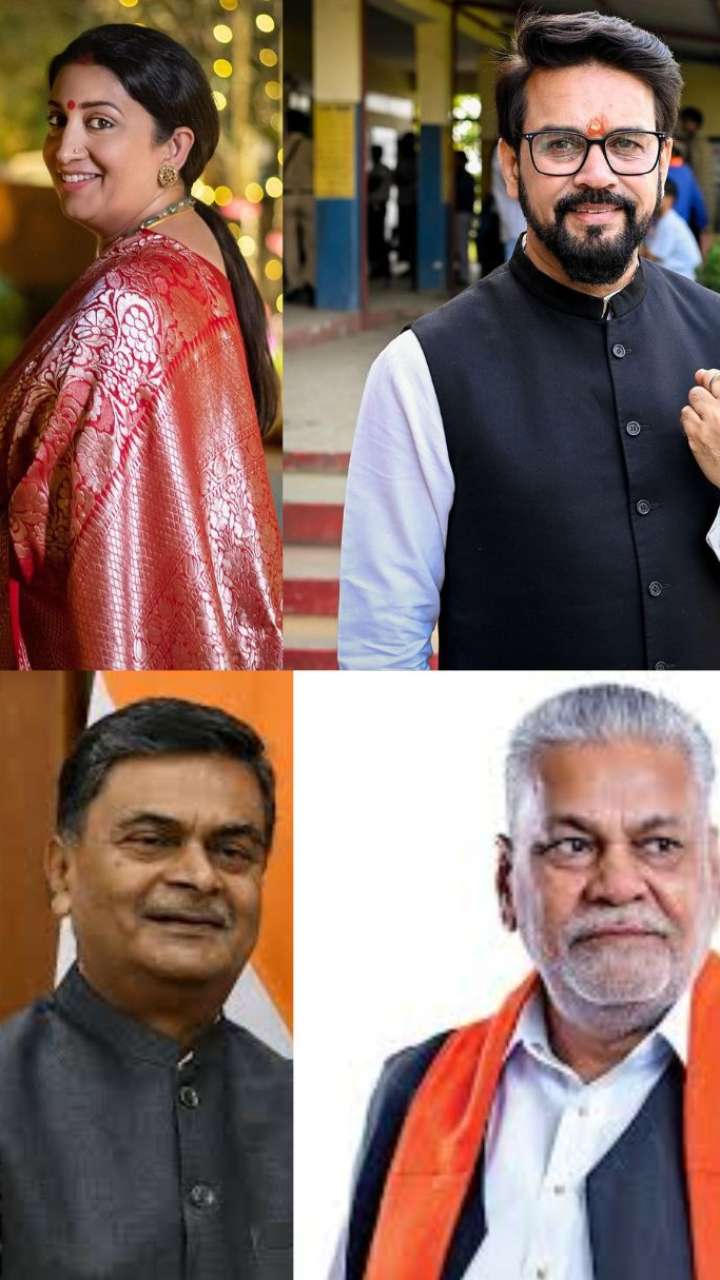
Modi Cabinet 3.0: Top BJP Ministers Who Were Dropped

दुनिया के 7 सबसे ठंडे देश कौन से हैं?

Top Things To Know About Coder And Cricketer Saurabh Netravalkar
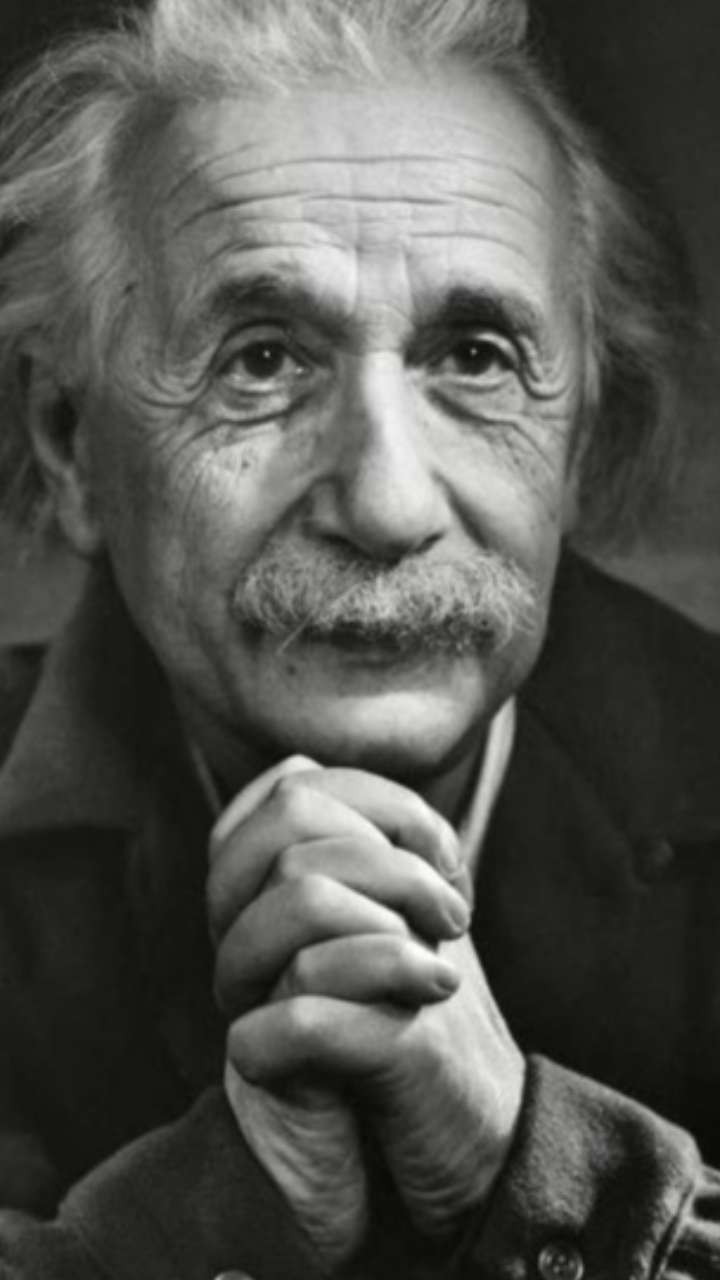
आइंस्टीन की इन आदतों से लें सबक
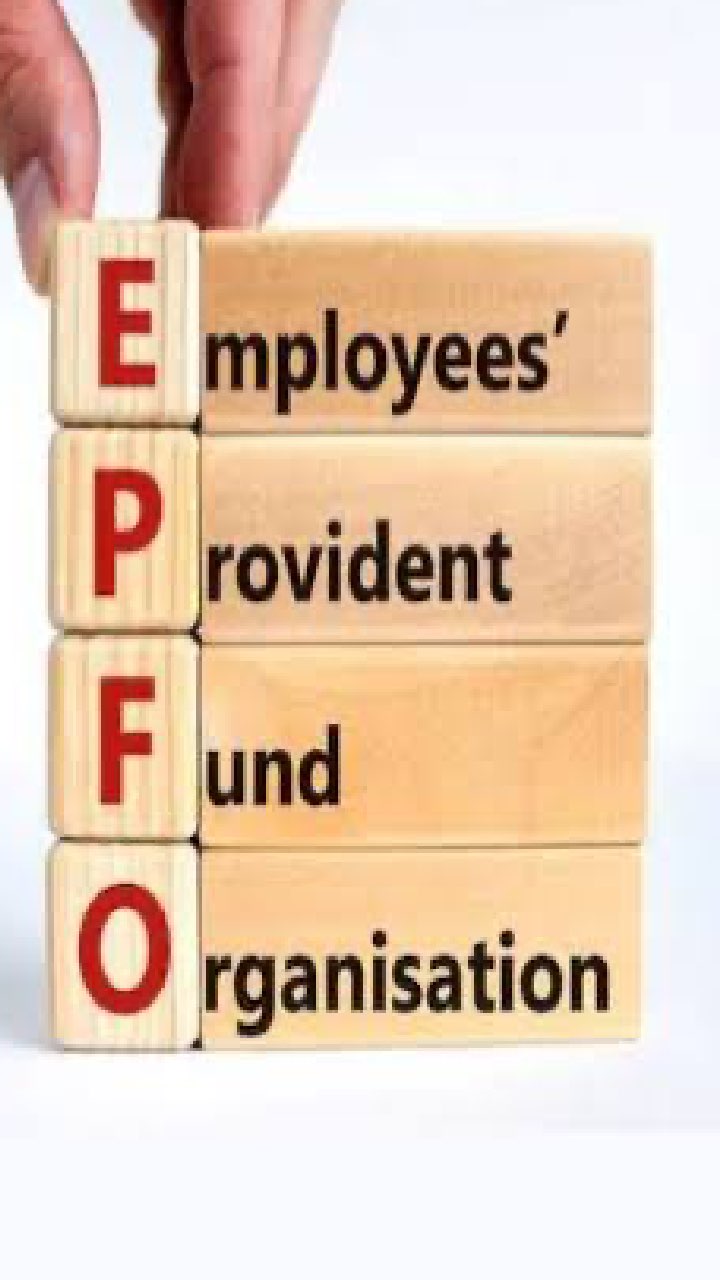
What is EPF Amount? Top Facts You Should Know About

7 Most-Beautiful Streets In The World
Subject wise general knowledge.
- Environemnt GK
- Art & Culture GK
General Knowledge FAQs
- Which is the best website for GK in India? + agran Josh Is The Best Website For GK In India And Is Committed To 'Simplify Test Prep', Leaving No Stone Unturned For The Candidates Preparing General Studies For Exams Like UPSC, SSC, Banking, State PCS, NDA, Etc. Jagran Josh Is A One-Stop Solution For Latest And Updated Information On Various Current And Static Topics Happening In India And Throughout The World.
- How can I get the latest updates on GK? + Latest Information Related To GK And Current Events Can Be Easily Accessed By Visiting 'Jagran Josh' Website Or By Downloading The 'Latest Current Affairs & GK In English & Hindi' App.
- How Jagran Josh's General Knowledge e-book can help me in preparing for various competitive exams? + Jagran Josh's Monthly E-Book Covers General Knowledge And Conventional Subjects. Since We Update The Contents Frequently, The Users Receive A Newsletter With The Updated Content Every Month. The Content Is To The Point And Prepared To Keep The Exams As The Focus. This E-Book Serves As A GK Supplement To Your Studies.
- How can I access current GK topics at jagranjosh.com? + Visit Jagranjosh.Com And Look For Various Categories On The Home Page. We Provide A Variety Of Topic Coverage With The Latest Information On General Knowledge, Current Affairs And Various Competitive Exams Such As UPSC, SSC, NDA, EPFO And So Forth.
- What is Jagran Josh? + 'Dedication + Devotion + Discipline + JOSH = Sure Success' Jagran Josh Currently Caters To The Aspirants Preparing For Different Competitive Exams Under Various Levels. The GK And The Current Affairs Section Of JagranJosh.Com Are The Most Popular Among The Aspirants.
- How to learn GK Easily for a Competitive exam? + In Order To Learn GK Effectively, Read The Newspapers Daily, Take GK Quizzes, And Prepare Short Notes To Revise The Important Events Regularly. This Strategy Will Not Only Contribute To The Aspirants' Preparation But Will Also Help Them Yield The Desired Results In Competitive Examinations.
- How can I learn GK for the UPSC Exam? + As General Knowledge Is An Important Section For The UPSC Examination, One Should Keep A Tab On General News, Read An In-Depth Analysis Of Important GK Topics, And Watch GD Interviews To Ace Their Preparation For One Of The Toughest Examinations In The World.
- What is the importance of General Knowledge? + General Knowledge Helps A Person To Be Aware Of The Daily Events That Are Happening In India And Around The World. It Helps One To Make Wise Decisions In Life.
- How to practice General Knowledge MCQs? + To Practice General Knowledge MCQs, One Must Always Go Through The Topic That One Will Be Practicing.Practice The MCQs And Then Evaluate Your Paper. In Case Of Any Incorrect Answer To A Question, Check The Correct Answer And Questions Related To It.
General Knowledge Questions with Answers
Candidates who are preparing for competitive exams often search for General Knowledge Questions with Answers. In such a case, aspirants must visit Jagranjosh.com where they can get topic wise GK questions with answers. Latest GK questions on Important Days and Dates , Polity, Economy, Government Schemes, Awards and Honours, States and Capitals of India , Trending News, etc can be found here. Studying topic wise GK questions with answers makes it very easy and systematic preparation. You can study basic, static as well as advanced GK questions here. This will help you get your basic GK strong, thereby helping you fetch marks.
The latest GK Questions and Answers are regularly published by jagranjosh.com and can be easily accessed by the aspirants under the GK Quiz section. The candidates appearing for various competitive and government recruitment examinations such as UPSC, SSC, Bank PO/Clerk, and so forth can test their knowledge by answering important general knowledge questions.
Jawaharlal Nehru
Indira Gandhi
Rajendra Prasad
Pratibha Patil
India GK (General Knowledge)
India GK section of jagranjosh.com presents the aspirants of various competitive examinations with the facts about Indian History, Geography, Polity, Art, Culture, Economy, Science, Environment and so forth, along with static and current events happening pan India. It further provides the aspirants with explainers on important GK Questions about India.
General Knowledge for Competitive Exams
Get the latest General Knowledge questions and answers for competitive exams from every topic. Our team has collated General Knowledge questions for competitive exams on various topics. You can find out the GK questions on topics such as State Wise GK quiz, Computer Awareness, Physics, Chemistry, Biology, Indian Polity, Insurance, Books and Authors, etc. In addition to reading GK for government exams, you can also find out daily current affairs that will give you information about the latest events in India and around the World.
Candidates who prefer to read General Knowledge in Hindi will be able to study General Knowledge questions and answers in Hindi here. It is good to study General knowledge in a language that you find to be comfortable. This helps a person to understand and track down events in a good way. In addition to this, reading GK in Hindi also helps one to retain the GK questions with answers in a better way.
Importance of General Knowledge
The importance of General knowledge serves different purposes for different individuals. General Knowledge is important for the candidates who are preparing for competitive exams to score marks while there are some people who have a keen interest in being aware of the latest events or have knowledge about GK. You can find out the importance of General Knowledge below:
- General knowledge broadens your perspective of the world as it develops a sense of understanding.
- GK for students helps them to increase their grades in academics. This in turn helps them to participate in GK quizzes and debate activities, thereby, giving them exposure.
- General knowledge helps one to achieve confidence in public speaking activities. It gives them the benefit of presenting more facts and information in great depth. This helps them to hold the audience by sharing intriguing facts.
- One is able to make an informed decision consciously. Such as being informed about the current fiscal policy helps one to make a good decision.
Topics for General Knowledge
General Knowledge not only consists of a single topic but it has a wide range of topics from every field. Having a list of topics for General Knowledge eases the process of preparing with ease. Topics for GK consist of both current and static GK such as Indian National Movement, 5 Year Plans, Budget, Revolt of 1857, Government Schemes, Important World Leaders, etc We have listed some of the important topics for General knowledge below:
- Government schemes
- Indian Culture
- Highest Peaks in India
- Highest Mountains in World
- States and Capitals of India
- Longest Rivers of India
- Historical Places in India and World
- Largest rivers, lakes, and mountains in the world
- Latest Summits and Conferences
- Awards and Honors
- List of Prime Ministers of India
- List of Presidents of India
- List of IPL Winners
- Fifa World Cup Winners
- National Parks and Sanctuaries
- UNESCO World Heritage Sites
- Full forms of National and International Organizations
- Complete Full Forms List
- Important Days and Dates
How to Practice General Knowledge Questions?
In order to practice General Knowledge Questions, one must ensure that they list out the subject wise topics. Read a particular topic carefully and simultaneously practice quiz questions based on it. You can go through the following to know how to practice General Knowledge questions to score marks:
- If you tend to forget an answer to a certain question then create flashcards to memorize them.
- Ensure that you revise the daily GK questions. Revision helps you to retain the concepts and recapitulate the events and questions based on GK.
- Make sure that you take GK mock tests to revise frequently.
- Practicing GK questions lets you retain the knowledge that you have studied, thereby, not creating any confusion with the current events.
Latest Education News
IBPS RRB Clerk Salary 2024: Check In-Hand Pay, Structure, Perks and Allowances
UP Police Constable Syllabus 2024: यहाँ से डाउनलोड करें यूपी पुलिस कांस्टेबल परीक्षा का लेटेस्ट सिलेबस और एग्जाम पैटर्न
Rajasthan PTET Cut Off 2024: Category-Wise Expected & Previous Year Cut Off Marks
UP B.Ed JEE Expected Cut Off 2024: Category-Wise Qualifying Marks
SBI SCO Recruitment 2024: Apply Online for 150 Special Cadre Officer Vacancies
CTET Previous Year Question Paper With Solution, Download PDF
UP BEd Previous Year Question Paper, Download UP B.Ed JEE PYQ PDFs
BSF HC and ASI Ministerial Eligibility Criteria 2024: Check Age Limit, Educational Qualification and Physical Requirements
JSSC Teacher 2024 Last-Minute Preparation Tips: Check Exam Day Guidelines & Paper Pattern
Lok Sabha Results Rajasthan 2024: सबसे अधिक और सबसे कम मतों से जीतने वाले प्रत्याशी कौन है?
भारतीय राजनीति में लगातार तीन बार पीएम की शपथ लेने वाले नेता कौन है?
UGC NET Previous Year Question Paper, Download Subject-wise PYQs PDF for Paper 1 & 2
Lok Sabha Election Results 2024: सबसे अधिक और सबसे कम वोटों से जीतने वाले उम्मीदवार कौन है?
Rajasthan BSTC Pre DELEd Syllabus 2024: राजस्थान प्री डीलिड परीक्षा का सिलेबस और एग्जाम पैटर्न, यहाँ से करें डाउनलोड
Digital SAT Suite of Assessments
SAT Practice and Preparation
From free practice tests to a checklist of what to bring on test day, College Board provides everything you need to prepare for the digital SAT.
Step 1: Now
Download and install the Bluebook app.
Step 2: Two Weeks Before Test Day
Take a full-length practice test in Bluebook.
Step 3: Five Days Before Test Day
Complete exam setup in Bluebook and get your admission ticket.
Step 4: On Test Day
Arrive on time (check your admission ticket).
Studying and Practice Tests
Practice tests.
Find full-length practice tests on Bluebook™ as well as downloadable linear SAT practice tests.
Khan Academy
Official Digital SAT Prep on Khan Academy ® is free, comprehensive, and available to all students.
Assistive Technology
Get information on how to practice for the digital SAT if you're using assistive technology.

My Practice
Take full-length digital SAT practice exams by first downloading Bluebook and completing practice tests. Then sign into My Practice to view practice test results and review practice exam items, answers, and explanations.
What to Bring and Do on Test Day
Find out everything you need to bring and do for the digital SAT.
SAT Student Guide (U.S.)
This guide provides helpful information for students taking the SAT during a weekend administration in Spring 2024.
SAT International Student Guide
A guide to the SAT for international students to learn how to prepare for test day. It covers the structure of the digital test, how to download the app and practice, information about policies, and testing rules.
SAT School Day Student Guide
Information about SAT School Day, sample test materials, and test-taking advice and tips.
SAT Practice Quick Start Guide
Learn how to practice for the SAT with this step-by-step guide.
Guía de inicio rápido de la práctica
Aprende cómo practicar para el SAT con esta guía de inicio rápido.
Why Should I Practice for the SAT?
This resource informs students about the benefits of practicing for the SAT and provides links to free practice resources.
¿Por qué debería practicar para el SAT?
Este folleto ofrece información sobre los beneficios de practicar para el SAT e incluye enlaces hacia recursos de práctica.
A Parent/Guardian's Guide to Official SAT Practice: Getting Your Teen Ready for the SAT
This resource provides parents and guardians with a schedule outline to help their child prepare for the SAT and includes links to free official practice materials.
A Parent/Guardian's Guide to Official SAT Practice: Getting Your Teen Ready for the SAT (Spanish)
Sat suite question bank: overview.
Federal Rules of Civil Procedure
Primary tabs.
These are the Federal Rules of Civil Procedure, as amended to December 1, 2023 1 . Click on any rule to read it.
- RULES OF CIVIL PROCEDURE FOR THE UNITED STATES DISTRICT COURTS
- Rule 1 . Scope and Purpose
- Rule 2 . One Form of Action
- Rule 3 . Commencing an Action
- Rule 4 . Summons
- Rule 4.1 . Serving Other Process
- Rule 5 . Serving and Filing Pleadings and Other Papers
- Rule 5.1 . Constitutional Challenge to a Statute—Notice, Certification, and Intervention
- Rule 5.2 . Privacy Protection For Filings Made with the Court
- Rule 6 . Computing and Extending Time; Time for Motion Papers
- Rule 7 . Pleadings Allowed; Form of Motions and Other Papers
- Rule 7.1 . Disclosure Statement
- Rule 8 . General Rules of Pleading
- Rule 9 . Pleading Special Matters
- Rule 10 . Form of Pleadings
- Rule 11 . Signing Pleadings, Motions, and Other Papers; Representations to the Court; Sanctions
- Rule 12 . Defenses and Objections: When and How Presented; Motion for Judgment on the Pleadings; Consolidating Motions; Waiving Defenses; Pretrial Hearing
- Rule 13 . Counterclaim and Crossclaim
- Rule 14 . Third-Party Practice
- Rule 15 . Amended and Supplemental Pleadings
- Rule 16 . Pretrial Conferences; Scheduling; Management
- Rule 17 . Plaintiff and Defendant; Capacity; Public Officers
- Rule 18 . Joinder of Claims
- Rule 19 . Required Joinder of Parties
- Rule 20 . Permissive Joinder of Parties
- Rule 21 . Misjoinder and Nonjoinder of Parties
- Rule 22 . Interpleader
- Rule 23 . Class Actions
- Rule 23.1 . Derivative Actions
- Rule 23.2 . Actions Relating to Unincorporated Associations
- Rule 24 . Intervention
- Rule 25 . Substitution of Parties
- Rule 26 . Duty to Disclose; General Provisions Governing Discovery
- Rule 27 . Depositions to Perpetuate Testimony
- Rule 28 . Persons Before Whom Depositions May Be Taken
- Rule 29 . Stipulations About Discovery Procedure
- Rule 30 . Depositions by Oral Examination
- Rule 31 . Depositions by Written Questions
- Rule 32 . Using Depositions in Court Proceedings
- Rule 33 . Interrogatories to Parties
- Rule 34 . Producing Documents, Electronically Stored Information, and Tangible Things, or Entering onto Land, for Inspection and Other Purposes
- Rule 35 . Physical and Mental Examinations
- Rule 36 . Requests for Admission
- Rule 37 . Failure to Make Disclosures or to Cooperate in Discovery; Sanctions
- Rule 38 . Right to a Jury Trial; Demand
- Rule 39 . Trial by Jury or by the Court
- Rule 40 . Scheduling Cases for Trial
- Rule 41 . Dismissal of Actions
- Rule 42 . Consolidation; Separate Trials
- Rule 43 . Taking Testimony
- Rule 44 . Proving an Official Record
- Rule 44.1 . Determining Foreign Law
- Rule 45 . Subpoena
- Rule 46 . Objecting to a Ruling or Order
- Rule 47 . Selecting Jurors
- Rule 48 . Number of Jurors; Verdict; Polling
- Rule 49 . Special Verdict; General Verdict and Questions
- Rule 50 . Judgment as a Matter of Law in a Jury Trial; Related Motion for a New Trial; Conditional Ruling
- Rule 51 . Instructions to the Jury; Objections; Preserving a Claim of Error
- Rule 52 . Findings and Conclusions by the Court; Judgment on Partial Findings
- Rule 53 . Masters
- Rule 54 . Judgment; Costs
- Rule 55 . Default; Default Judgment
- Rule 56 . Summary Judgment
- Rule 57 . Declaratory Judgment
- Rule 58 . Entering Judgment
- Rule 59 . New Trial; Altering or Amending a Judgment
- Rule 60 . Relief from a Judgment or Order
- Rule 61 . Harmless Error
- Rule 62 . Stay of Proceedings to Enforce a Judgment
- Rule 62.1 . Indicative Ruling on a Motion for Relief That is Barred by a Pending Appeal
- Rule 63 . Judge's Inability to Proceed
- Rule 64 . Seizing a Person or Property
- Rule 65 . Injunctions and Restraining Orders
- Rule 65.1 . Proceedings Against a Security Provider
- Rule 66 . Receivers
- Rule 67 . Deposit into Court
- Rule 68 . Offer of Judgment
- Rule 69 . Execution
- Rule 70 . Enforcing a Judgment for a Specific Act
- Rule 71 . Enforcing Relief For or Against a Nonparty
- Rule 71.1 . Condemning Real or Personal Property
- Rule 72 . Magistrate Judges: Pretrial Order
- Rule 73 . Magistrate Judges: Trial by Consent; Appeal
- Rule 74 . [Abrogated (Apr. 11, 1997, eff. Dec. 1, 1997).]
- Rule 75 . [Abrogated (Apr. 11, 1997, eff. Dec. 1, 1997).]
- Rule 76 . [Abrogated (Apr. 11, 1997, eff. Dec. 1, 1997).]
- [Rule 71A. Renumbered Rule 71.1]
- Rule 77 . Conducting Business; Clerk's Authority; Notice of an Order or Judgment
- Rule 78 . Hearing Motions; Submission on Briefs
- Rule 79 . Records Kept by the Clerk
- Rule 80 . Stenographic Transcript as Evidence
- Rule 81 . Applicability of the Rules in General; Removed Actions
- Rule 82 . Jurisdiction and Venue Unaffected
- Rule 83 . Rules by District Courts; Judge's Directives
- Rule 84 . Abrogated, eff. Dec. 1, 2015
- Rule 85 . Title
- Rule 86 . Effective Dates
- Rule 87 Civil Rules Emergency
- XII. APPENDIX OF FORMS (U.S. Courts site)
- Rule A . Scope of Rules
- Rule B . In Personam Actions: Attachment and Garnishment
- Rule C . In Rem Actions: Special Provisions
- Rule D . Possessory, Petitory, and Partition Actions
- Rule E . Actions in Rem and Quasi in Rem: General Provisions
- Rule F . Limitation of Liability
- Rule G . Forfeiture Actions in Rem
- Rules 1 - 7
1 Title amended December 29, 1948, effective October 20, 1949.
Historical Note
The original Rules of Civil Procedure for the District Courts were adopted by order of the Supreme Court on Dec. 20, 1937, transmitted to Congress by the Attorney General on Jan. 3, 1938, and became effective on Sept. 16, 1938.
The Rules have been amended Dec. 28, 1939, eff. Apr. 3, 1941; Dec. 27, 1946, eff. Mar. 19, 1948; Dec. 29, 1948, eff. Oct. 20, 1949; Apr. 30, 1951, eff. Aug. 1, 1951; Apr. 17, 1961, eff. July 19, 1961; Jan. 21, 1963, eff. July 1, 1963; Feb. 28, 1966, eff. July 1, 1966; Dec. 4, 1967, eff. July 1, 1968; Mar. 30, 1970, eff. July 1, 1970; Mar. 1, 1971, eff. July 1, 1971; Nov. 20, 1972, and Dec. 18, 1972, eff. July 1, 1975; Apr. 29, 1980, eff. Aug. 1, 1980; Oct. 21, 1980, Pub. L. 96–481, title II, §205(a), (b), 94 Stat. 2330; Jan. 12, 1983, Pub. L. 97–462, §§2–4, 96 Stat. 2527–2530, eff. Feb. 26, 1983; Apr. 28, 1983, eff. Aug. 1, 1983; Apr. 29, 1985, eff. Aug. 1, 1985; Mar. 2, 1987, eff. Aug. 1, 1987; Apr. 25, 1988, eff. Aug. 1, 1988; Nov. 18, 1988, Pub. L. 100–690, title VII, §§7047(b), 7049, 7050, 102 Stat. 4401; Apr. 30, 1991, eff. Dec. 1, 1991; Dec. 9, 1991, Pub. L. 102–198, §11, 105 Stat. 1626; Apr. 22, 1993, eff. Dec. 1, 1993; Apr. 27, 1995, eff. Dec. 1, 1995; Apr. 23, 1996, eff. Dec. 1, 1996; Apr. 11, 1997, eff. Dec. 1, 1997; Apr. 24, 1998, eff. Dec. 1, 1998; Apr. 26, 1999, eff. Dec. 1, 1999; Apr. 17, 2000, eff. Dec. 1, 2000; Apr. 23, 2001, eff. Dec. 1, 2001; Apr. 29, 2002, eff. Dec. 1, 2002; Mar. 27, 2003, eff. Dec. 1, 2003; Apr. 25, 2005, eff. Dec. 1, 2005; Apr. 12, 2006, eff. Dec. 1, 2006; Apr. 30, 2007, eff. Dec. 1, 2007; Apr. 23, 2008, eff. Dec. 1, 2008; Mar. 26, 2009, eff. Dec. 1, 2009; Apr. 28, 2010, eff. Dec. 1, 2010; Apr. 2013, eff. Dec. 1, 2013; Apr. 25, 2014, eff. Dec. 1, 2014; Apr. 29, 2015, eff. Dec. 1, 2015; Apr. 28, 2016, eff. Dec 1, 2016.
References to Equity Rules
The Federal Rules of Civil Procedure supplant the Equity Rules since in general they cover the field now covered by the Equity Rules and the Conformity Act (former section 724 of this title).
This table shows the Equity Rules to which references are made in the notes to the Federal Rules of Civil Procedure.
| Equity Rules | Federal Rules of Civil Procedure |
|---|---|
| 1 | 77 |
| 2 | 77 |
| 3 | 79 |
| 4 | 77 |
| 5 | 77 |
| 6 | 78 |
| 7 | 4, 70 |
| 8 | 6, 70 |
| 9 | 70 |
| 10 | 18, 54 |
| 11 | 71 |
| 12 | 3, 4, 5, 12, 55 |
| 13 | 4 |
| 14 | 4 |
| 15 | 4, 45 |
| 16 | 6, 55 |
| 17 | 55 |
| 18 | 7, 8 |
| 19 | 1, 15, 61 |
| 20 | 12 |
| 21 | 11, 12 |
| 22 | 1 |
| 23 | 1, 39 |
| 24 | 11 |
| 25 | 8, 9, 10, 19 |
| 26 | 18, 20, 82 |
| 27 | 23 |
| 28 | 15 |
| 29 | 7, 12, 42, 55 |
| 30 | 8, 13, 82 |
| 31 | 7, 8, 12, 55 |
| 32 | 15 |
| 33 | 7, 12 |
| 34 | 15 |
| 35 | 15 |
| 36 | 11 |
| 37 | 17, 19, 20, 24 |
| 38 | 23 |
| 39 | 19 |
| 40 | 20 |
| 41 | 17 |
| 42 | 19, 20 |
| 43 | 12, 21 |
| 44 | 12, 21 |
| 45 | 25 |
| 46 | 43, 61 |
| 47 | 26 |
| 48 | 43 |
| 49 | 53 |
| 50 | 30, 80 |
| 51 | 30, 53 |
| 52 | 45, 53 |
| 53 | 53 |
| 54 | 26 |
| 55 | 30 |
| 56 | 40 |
| 57 | 40 |
| 58 | 26, 33, 34, 36 |
| 59 | 53 |
| 60 | 53 |
| 61 | 53 |
| 611/2 | 53 |
| 62 | 53 |
| 63 | 53 |
| 64 | 26 |
| 65 | 53 |
| 66 | 53 |
| 67 | 53 |
| 68 | 53 |
| 69 | 59 |
| 70 | 17 |
| 701/2 | 52 |
| 71 | 54 |
| 72 | 60, 61 |
| 73 | 65 |
| 74 | 62 |
| 75 | 75 |
| 76 | 75 |
| 77 | 76 |
| 78 | 43 |
| 79 | 83 |
| 80 | 6 |
| 81 | 86 |
- TITLE I. SCOPE OF RULES; FORM OF ACTION
- TITLE II. COMMENCING AN ACTION; SERVICE OF PROCESS, PLEADINGS, MOTIONS, AND ORDERS
- TITLE III. PLEADINGS AND MOTIONS
- TITLE IV. PARTIES
- TITLE V. DISCLOSURES AND DISCOVERY
- TITLE VI. TRIALS
- TITLE VII. JUDGMENT
- TITLE VIII. PROVISIONAL AND FINAL REMEDIES
- TITLE IX. SPECIAL PROCEEDINGS
- TITLE X. DISTRICT COURTS AND CLERKS: CONDUCTING BUSINESS; ISSUING ORDERS
- TITLE XI. GENERAL PROVISIONS
- XIII. SUPPLEMENTAL RULES FOR ADMIRALTY OR MARITIME CLAIMS AND ASSET FORFEITURE ACTIONS
- SUPPLEMENTAL RULES FOR SOCIAL SECURITY ACTIONS UNDER 42 U.S.C. § 405(g)
Course & Exam Pages
NCERT Solutions for Class 6, 7, 8, 9, 10, 11 and 12
NCERT Solutions for Class 9 Science
January 18, 2024 by Veerendra
NCERT Solutions for Class 9 Science are given for the students so that they can get to know the in text question and chapter end question answers in case they are not able to find it. It is important for all the students who are in Class 9th currently. Here we are providing the solutions to all the chapters of Class 9 Science Textbook for the students. They can refer to samajik vigyan class 9 Physics, Chemistry and Biology Solutions while they are solving the questions from the Science Book.
Class 9 Science NCERT Solutions is given here. Students can click on the links of the particular chapter for which they are finding the solutions.
- Chapter 1 Matter in Our Surroundings
- Chapter 2 Is Matter Around Us Pure
- Chapter 3 Atoms and Molecules
- Chapter 4 Structure of the Atom
- Chapter 5 The Fundamental Unit of Life
- Chapter 6 Tissues
- Chapter 7 Diversity in Living Organisms
- Chapter 8 Motion
- Chapter 9 Force and Laws of Motion
- Chapter 10 Gravitation
- Chapter 11 Work, Power And Energy
- Chapter 12 Sound
- Chapter 13 Why Do we Fall Ill
- Chapter 14 Natural Resources
- Chapter 15 Improvement in Food Resources
The students who are in class 9th and have the NCERT Science Books can check this page to know the answers for all the chapters of Science book. They need to ensure that they are checking the solutions for the chapter which they intend to check.
FAQs on NCERT Solutions for Class 9 Science
1. What’s the best way to study Class 9 Science CBSE?
The best way to study Class 9 Science is through NCERT. Don’t just mug up the concepts instead go through all the concepts thoroughly. Make notes and practice as much as you can.
2. Where can I get the NCERT solutions for Class 9 Science?
You need not panic as we will give you all the NCERT Solutions for Class 9 Science all at one place on our site. View or download them and practice as and when you want.
3. Which is the best book of science for Class 9 CBSE?
We will not specifically say one book is the best for preparing Class 9 Science. Instead, we will ay try covering all the concepts in NCERT Textbooks prescribed for Class 9 Science that can help in your Exams.
4. How do I score good marks in science class 9?
The only key for scoring more marks in the CBSE Class 9 Science Exam is through sheer practice. It’s the best way to score well in the exams as well as get command on the subject.
5. Where can I get CBSE Class 9 Sample Papers?
Aspirants can get the CBSE Class 9 Sample Papers that can ace up preparation for free of cost from our page. Check out the links available on our site and use them as a reference to score better grades in the exam.
6. What are the study tips for Class 9 Science Exam?
Some of the best tips that help you to score more in your Class 9 Science Exam are as follows
- Make a proper plan and schedule to study
- Focus on the basic concepts and try concentrating on weaker areas.
- Dedicate time to each of the concepts.
- Practice as much as you can to score well.
Important Questions For Class 9 Science
Importance of the Class 9 Physics, Chemistry, Biology NCERT Solutions
The NCERT Class 9 Science Textbook Solutions are important for the students to get good marks in their exams. Through these, they can get solutions to those questions on which they get stuck. These are the valid solutions and students can check these whenever they face any confusion in the questions.
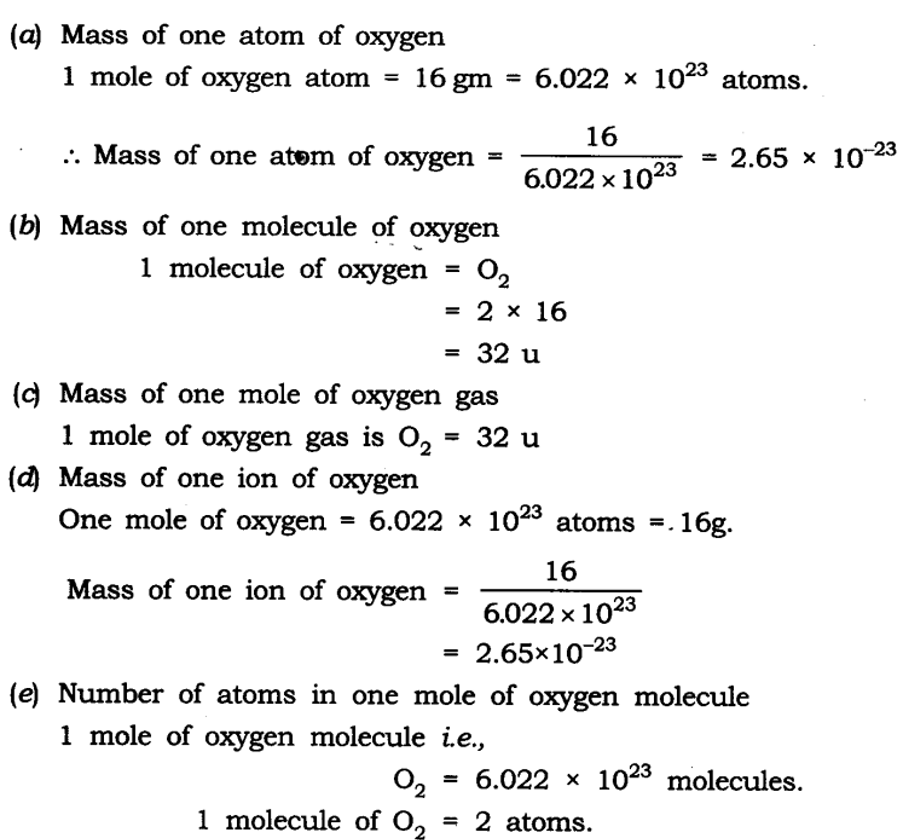
Free Resources
NCERT Solutions
Quick Resources

IMAGES
VIDEO
COMMENTS
Get CBSE Class 9 English Term 2 Sample Paper to practice important questions for CBSE Class 9 Term 2 Exam 2022. Solve the paper and check solution for effective preparation and score high marks.
Here we have given English Sample Paper for Class 9 Solved Set 2. Board - Central Board of Secondary Education, cbse.nic.in. Subject - CBSE Class 9 English. Year of Examination - 2019. English Solved Sample Question Paper 1. English Solved Sample Question Paper 2. English Solved Sample Question Paper 3. English Solved Sample Question Paper 4.
NCERT Solutions for Class 9 English Chapter-wise - Download Free PDF (Updated for 2023-24) NCERT Solutions for Class 9 English from BYJU'S includes answers to all the questions of the main textbook, Beehive, and the supplementary reader Moments.The NCERT solutions are mainly created to help students ace the exam with much confidence. The highly knowledgeable experts make use of simple ...
Here we have given CBSE Class 9 English Poem Chapter 2 Wind. NCERT Solutions. NCERT Library; RD Sharma. ... Solved CBSE Sample Papers for Class 9 with Solutions 2023-2024; CBSE Sample Papers Class 8; ... Short Answer Type Questions (2 marks each) (About 30-40 words each) Question 1: Describe the central idea of the poem.
CBSE Sample Question Paper for Class 9 - Free PDF Download. Class 9 is the first step that students take to enter an advanced domain of the academic curriculum. Students follow a stringent curriculum of a set of subjects in Class 9. The conceptual development of students at this level will determine how they perform in the exams.
NCERT Solutions Class 9 English Chapter 2 Poem Wind. WIND. Thinking about the Poem. I. Question 1. What are the things the wind does in the first stanza? Answer: The wind breaks the shutters of the windows, scatters the papers, throws down the books on the shelf, tears the pages of the books and brings the rain. Question 2.
Important Questions for Class 9 English Moments. Chapter 1 The Lost Child. Chapter 2 The Adventures of Toto. Chapter 3 Iswaran the Storyteller. Chapter 4 In the Kingdom of Fools. Chapter 5 The Happy Prince. Chapter 6 Weathering the Storm in Ersama. Chapter 7 The Last Leaf. Chapter 8 A House is not a Home.
I. Tick the right answer. 1. The (shehnai, pungi ) was a 'reeded noisemaker.'. 2. (Bismillah Khan, A barber, Ali Bux) transformed the pungi into a shehnai. 3. Bismillah Khan's paternal ancestors were (barbers, professional musicians). 4. Bismillah Khan learnt to play the shehnai from (Ali Bux, Paigambar Bux, Ustad Faiyaaz Khan).
Access Answers to NCERT Solutions for Class 9 English Chapter 2 Poem Wind. Thinking about the Poem. I. Question 1. What are the things the wind does in the first stanza? Answer: The wind breaks the shutters of the windows, scatters the papers, throws down the books on the shelf, tears the pages of the books and brings the rain. Question 2.
Question 2: As for music, she explains "it pours in through every part of my body. It tingles in the skin, my cheekbones and even in my hair". When she plays the xylophone, she can sense the sound passing up the stick into her finger tips. By leaning against the drums, she can feel the resonances flowing into her body.
All Questions Answers All Chapters in One PDF Class 9 English Notes Download 9th Class English - All Chapters Questions Answers Lesson No: 1 THE SAVIOUR OF MANKIND Q: What type of land Arabia is? A: Arabia is a land of unparalleled charm and beauty, with its trackless deserts of sand dunes in the […]
Class 9 Social Science Civics Chapter 2 NCERT Solutions. Question 1: Here are some false statements. Identify the mistake in each case and rewrite these correctly based on what you have read in this chapter. (a) Leaders of the freedom movement had an open mind about whether the country should be democratic or not after independence.
The Class 9th English Chapter 2 offers students all the required answers and info. This helps in mitigating any additional irrelevant content that students might come across. The NCERT Solutions to Class 9 English Beehive Chapter 2 Question Answers use real-life examples to reach the students and help them empathise more with the highlights of ...
2. Write the steps you would use for making tea. Use the words solution, solvent, solute, dissolve, soluble, insoluble, filtrate, and residue. Solution: (a) Into a vessel, add a cup of milk, which is the solvent, and supply it with heat. (b) Add tea powder or tea leaves to the boiling milk, which acts as a solute.
Answer. People as a resource is a way of referring to the country's working population in terms of their. existing productive skills and abilities. 2. How is human resource different from other resources like land and physical capital? Answer. Human resource makes use of other resources like land and physical capital to produce an output.
9th class SA 2 question paper with key answer. Summative assessment 2 based on Kalika Chetarike for class 9. SA 2 question paper with key answer for 9 th class. 9 th standard SA 2 question paper with key answer. 9 th class SA 2 question paper based on Kalika chetarike.. To get more video notes for class 9, visit our YouTube channel. This channel is very useful for 9 th standard exam preparation.
Answer: (d) Paying money to government officials to get water is an undemocratic method. 7. Write a response to the following arguments against democracy. (a) Army is the most disciplined and corruption-free organisation in the country. Therefore the army should rule the country.
General Knowledge GK 2024: Check here latest and today GK Questions Answers, Quiz, GS, GA for various competitive & UPSC exams. Improve your GK Here! ... PSEB Class 9th Syllabus 2024-25: Download ...
My Practice. Take full-length digital SAT practice exams by first downloading Bluebook and completing practice tests. Then sign into My Practice to view practice test results and review practice exam items, answers, and explanations. Download Bluebook.
Historical Note. The original Rules of Civil Procedure for the District Courts were adopted by order of the Supreme Court on Dec. 20, 1937, transmitted to Congress by the Attorney General on Jan. 3, 1938, and became effective on Sept. 16, 1938.
Human resource is an asset for the economy rather than a liability. Population becomes human capital when there is investment made in the form of education, training and medical care. In fact, human capital is the stock of skill and productive knowledge embodied in them. Question-2.
The NCERT Solutions for Class 9 Economics are created by the subject experts and are accurate. Every question is explained stepwise for a better understanding of the students. They can use these for reference purposes. Chapter 2 People As Resource. Students can download the NCERT Solutions for Class 9 Economics PDF below.
A comprehensive list of all current AP courses and exams categorized by subject areas on AP Central College Board.
Class 9 Science NCERT Solutions is given here. Students can click on the links of the particular chapter for which they are finding the solutions. Chapter 1 Matter in Our Surroundings. Chapter 2 Is Matter Around Us Pure. Chapter 3 Atoms and Molecules. Chapter 4 Structure of the Atom. Chapter 5 The Fundamental Unit of Life.
NCERT Solutions Class 9 English Supplementary Book Chapter 2 - Free PDF Available. We are offering you reliable and comprehensive NCERT Solutions for Class 9 English Chapter 2 The Adventures of Toto, covering answers to each and every question of the supplementary reader Moments.With the help of these accurate NCERT Solutions for Class 9 English, students will be able to prepare and score ...
NCERT Book Solutions For Class 9 History Chapter 2 - CBSE Free PDF Download. NCERT Solutions for Class 9 History Chapter 2 is designed completely based on the syllabus and guidelines of the latest CBSE exams. The French Revolution created new possibilities and dramatically brought changes to equality, fraternity, and liberty in Europe.